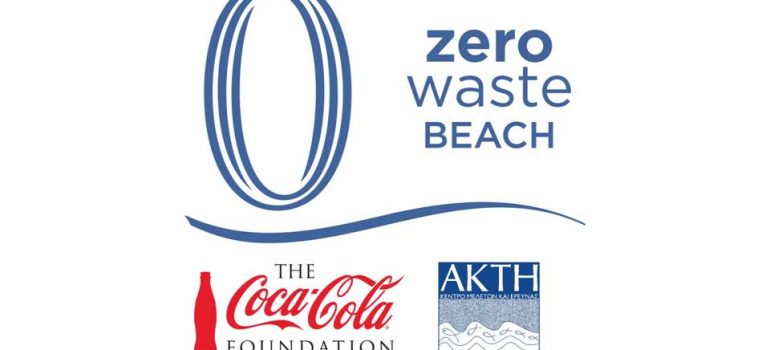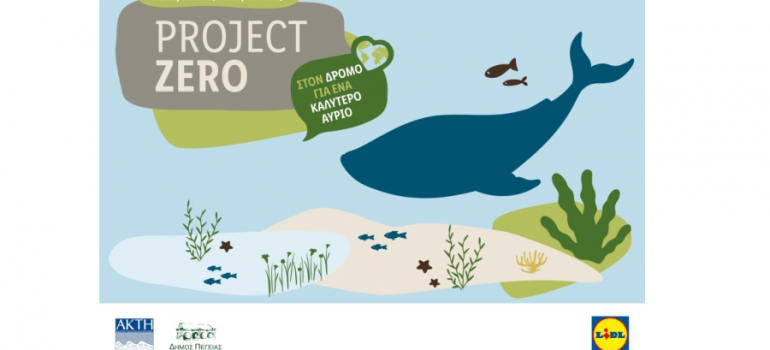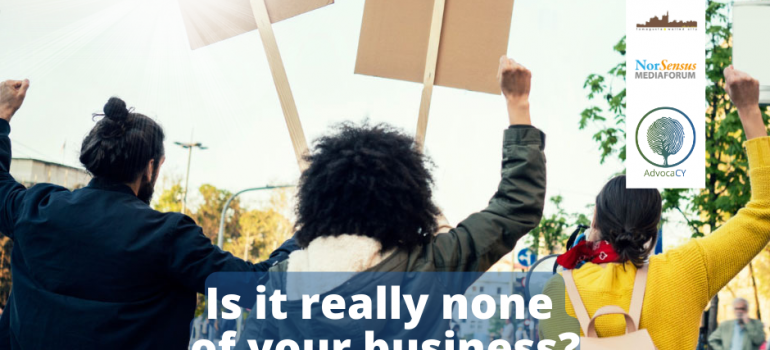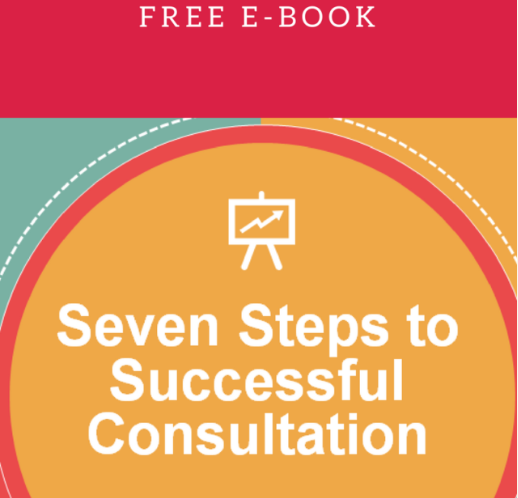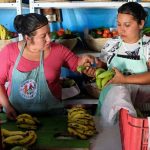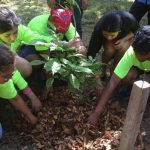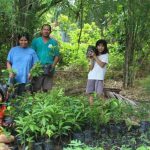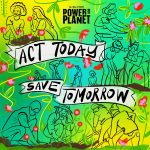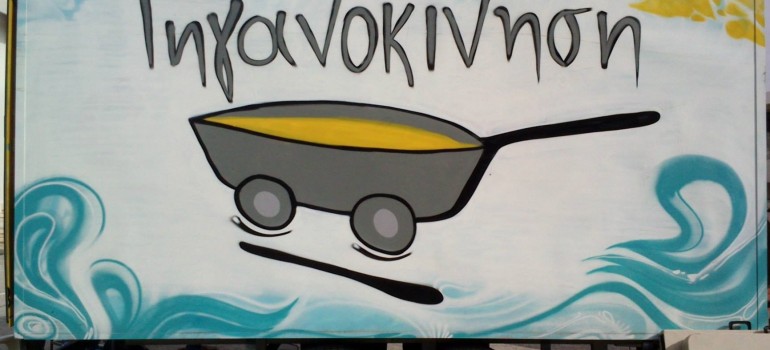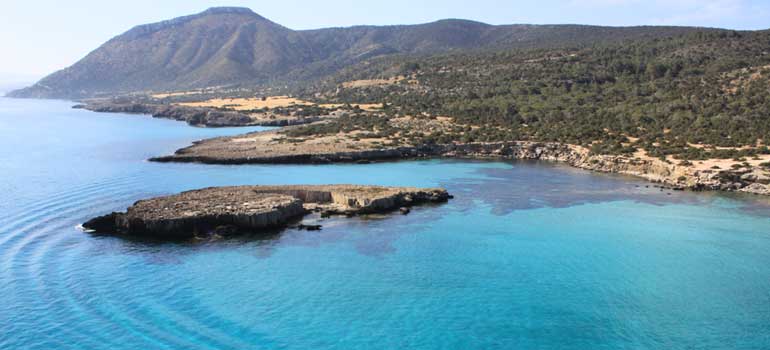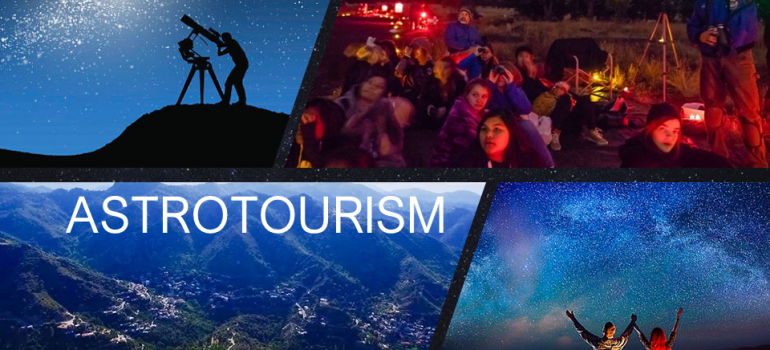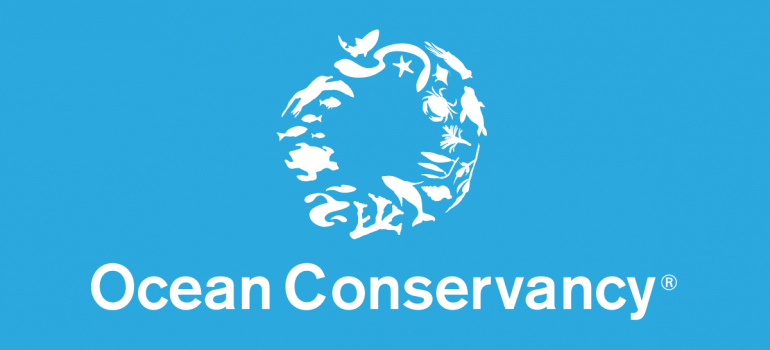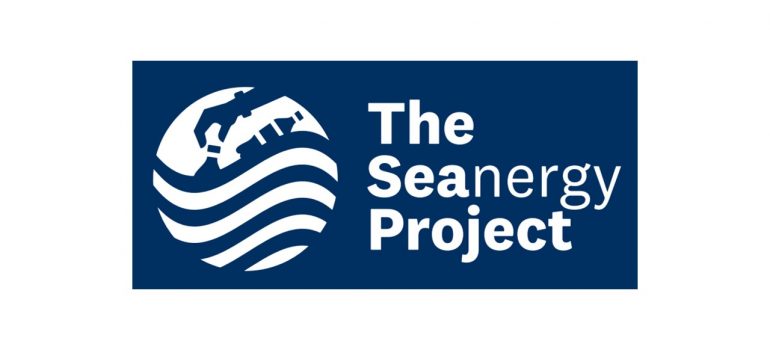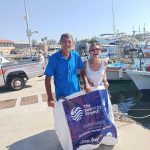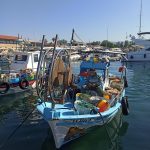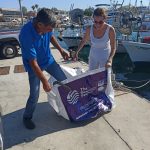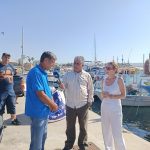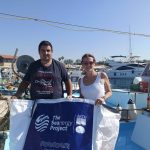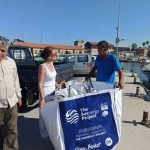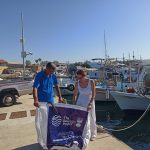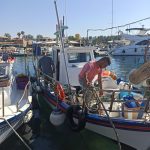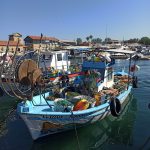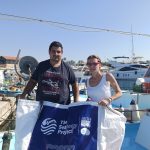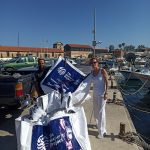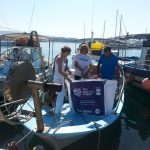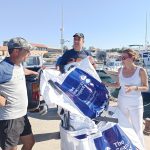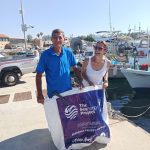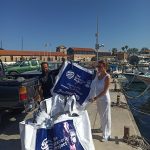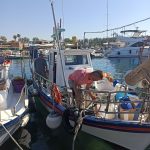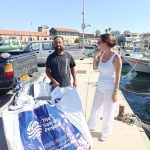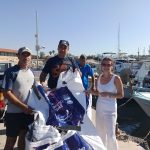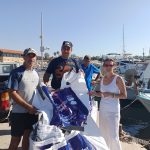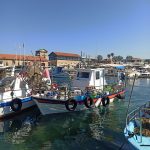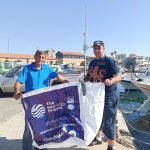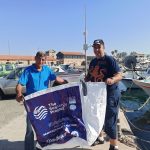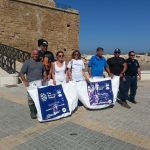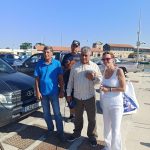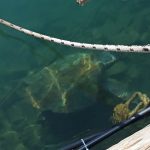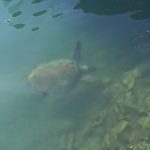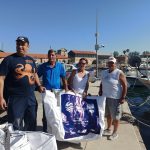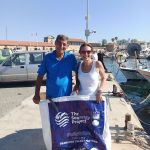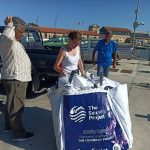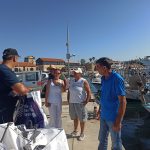Environmental Education and Vocational Training
Green Enough: Educational program to raise ecological behaviour through an inclusive methodology using AR Technology
Environmental Education and Vocational TrainingJan 23rd, 20230 comments
The Green Enough Project aims to raise ecological behaviour of adults and adolescents with developmental and/or intellectual disabilities by creating an adapted educational program for professionals working with them on a daily basis. The developed educational program will combine traditional methodologies (e.g., on site visits, seminars) with an innovative Augmented Reality application.
The participating professionals will be trained, assessed and certified in the educational program and the use of the application, aiming to raise awareness and promote positive ecological behaviour of their beneficiaries. Piloting activities will be organised so as to ensure quality of the training developed and the whole process is going to be adapted to European quality standards. The consortium of the Green Enough project consists of experienced organisations in the fields of service provision for persons with disabilities, environmental sustainability, innovative technological solutions and quality certification and will combine knowledge, exchange good practices and produce high quality deliverables to meet the goals of the project.
An important aspect of the Green Enough Project is the emphasis on autonomy and the development of daily living skills in an environmentally friendly manner. The development and use of Augmented Reality application will contribute greatly to this goal, as professionals will acquire the skills to educate their beneficiaries on independent eco-friendly daily living supported by an easily accessible and adapted app on their devices.
Το Καραβάνι της Τηγανοκίνησης
Environmental Education and Vocational TrainingDec 13th, 20220 comments
Μετά από πέντε χρόνια ακινησίας, η κινητή πειραματική μονάδα περιβαλλοντικής εκπαίδευσης «το Καραβάνι της Τηγανοκίνησης» της ΑΚΤΗΣ βγαίνει και πάλι στους δρόμους της Κύπρου, στα σχολεία μας, προσφέροντας εργαστηριακές εμπειρίες πράσινης χημείας στους μαθητές όλης της Κύπρου.
Η τελετή επανέναρξης της λειτουργίας του Καραβανιού πραγματοποιήθηκε στις 8 Δεκεμβρίου στην Πάφο σε συνεργασία με το Δήμο και το Β Δημοτικό Σχολείο Γεροσκήπου, στην παρουσία της Επιτρόπου Περιβάλλοντος κας Κλέλιας Βασιλείου.
Το Καραβανι της Τηγανοκίνησης, στελεχωμένο από την επιστημονική ομάδα της ΑΚΤΗΣ, ξεκινά το νέο του ταξίδι, επισκέπτεται τα σχολεία και παρουσιάζει διαδραστικά πειράματα σε ένα ευρύ φάσμα περιβαλλοντικών τεχνολογιών όπως η διαδικασία μετατροπής μαγειρικού λαδιού σε βιοντίζελ, λύσεις εξοικονόμησης νερού και ενέργειας, Ανανεώσιμες Πηγές Ενέργειας, εφαρμοσμένες τεχνικές κομποστοποίησης κα. Το Καραβάνι της Τηγανοκίνησης υποστηρίζεται από το Πρόγραμμα Εταιρικής Ευθύνης της Chevron και έχει εξοπλιστεί με νέες, καινοτόμες πειραματικές διατάξεις και ανανεωμένη θεματολογία.
Τι είναι η Τηγανοκίνηση; Μάθετε περισσότερα εδώ.
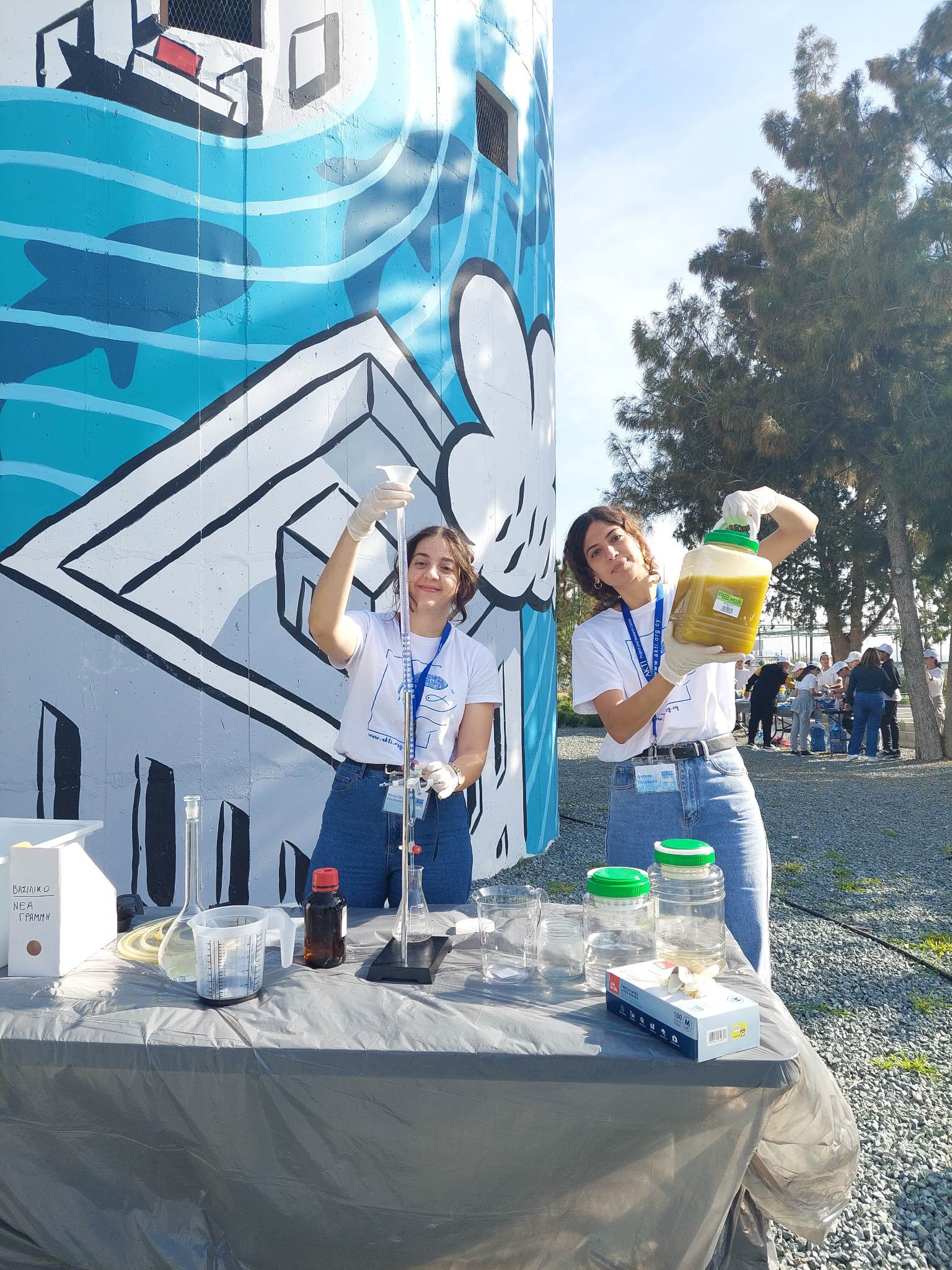
Zero Waste Beach in Cyprus. Zero Waste Future in Malta. Net Zero in Cyprus and Malta
Applied Environmental Research Environmental Education and Vocational Training Public Outreach and AdvocacyNov 1st, 20220 comments
Zero Waste Beach and Future projects
Marine litter is an environmental, economic as well as human health problem with no simple solution. It poses a global, complex and multi-dimensional challenge with significant implications for the marine and coastal environment and human activities all over the world. Recovery and recycling of the most common marine litter items, are important steps in halting the inflow of items into the marine environment and are also critical first steps in promoting the Circular Economy. Recovery and recycling are particularly critical in island countries, such as Cyprus and Malta.
To address the problems outlined above, the initiative proposed here aims to engage citizens, students, local authorities and businesses to take ownership of the environment they spend most time in so as to increase recycling and decrease land and marine litter, using the “producer responsibility” mentality, but through soft, awareness-raising and participatory measures.
Activities for Zero Waste Beach Cyprus:
Click here to learn about some exciting news for Cyprus!
🎥 General Actions_Total Results (video_en)
🎥 General Actions_Total Results (video_gr)
📈Infographic_Total Results (2018-2020) (pdf_gr)
1️⃣. Strengthened and expanded the «Responsible Coastal Businesses Network»: to 310 members, through the implementation of an extensive awareness-raising campaign, targeting all coastal businesses on the island. In these campaigns, AKTI’s staff have been liaised with approximately 800 business owners/managers/employees, informing them about marine litter (sources and impacts) as well as about the upcoming European legislation on single-use plastics and how it affects them and assisting them in implementing practices that will minimize their plastic production and thus minimize the potential for marine plastic pollution from their operations and their customers’ activities. The involvement of local authority representatives has added particular clout to this activity.
❓ HOW and WHY to join the Responsible Coastal Businesses Network_EN_(pdf)
❓ HOW and WHY to join the Responsible Coastal Businesses Network_GR_(pdf)
The RCB network members can be viewed in the below map.
To provide inspiration, a Decalogue and a Guide were developed during the last year implementation of the project and distributed to the Coastal Businesses. Decalogue contained 10 basic possible good practices and the Guide contained examples of these good practices in order to inspire the applicants and encourage them to act against plastic pollution and generally for a more green performance of their businesses.
An electronic version of these, are available here:
✅ Examples of Good Practices_gr
2️⃣. Tracked and recorded recycling waste from the Responsible Coastal Businesses: The members of the Responsible Coastal Businesses Network ought, as a mandatory term of their network membership, to record the amount of recyclable waste (PMD, glass, general) that they dispose. 980 tons of recycling waste collected by the responsible coastal businesses throughout the duration of the project. This has been monitored with regular visits by AKTI’s group of experts, who also provided their suggestions on how the business can become more effective in recycling. In this way, they will be able to set goals and monitor their reduction in the long run, as a result of the implementation of plastic reducing practices.
3️⃣. Beach cleanups in conjunction with the International Coastal Cleanup: AKTI implemented annual beach cleanups on selected beaches with the collaboration of the Responsible Coastal Businesses, local authorities, schools, and volunteers.
AKTI is the national coordinator of the International Coastal Cleanup of the Ocean Conservancy in Cyprus. Therefore, all the cleanups implemented using the International Coastal Cleanup Protocol. The data included in the Regional Marine Litter Database and has also be submitted to the ICC.
📸🌊Some photos from the Beach and Seabed Cleanups, are available here: 1 & 2 & 3 & 4 & 5
🎥🌊Some Videos from the Beach and Seabed Cleanups:
video 1___video 2___video 3___video 4___video 5
video 6___video 7___video 8___video 9___video 10
4️⃣. Tracked and recorded recycling waste from the Responsible Coastal Businesses, on-the-go recycle bins and events : 980 tons of recycling waste collected in Cyprus by coastal businesses-members of the Network throughout the duration of the project, of which, the percentage per source of total recyclable waste, were 46% Paper, 30% PMD and 24% Glass. In these 980 tons of recycling waste collected from the coastal businesses, the 130 tons correspond to PET.
This has been monitored with regular visits by AKTI’s group of experts, who also
provided their suggestions on how the business can become more effective in
recycling. In this way, they will be able to set goals and monitor their reduction in the
long run, as a result of the implementation of plastic reducing practices.
17 tons of recyclable waste was collected from these bins during the implementation
period of the project. The aim was to encourage local authorities and communities to
improve collection infrastructure and implement reduction actions for plastics used.
Source identification activity was performed for this action. AKTI’s staff separated
the collected waste per source, to create an innovative database with data that can be
used for directing budget to the management of the most frequent litter.
📸♻️More information and photos about “On-the-go recycling” research action, can be found here.
5️⃣. Α Competition for the implementation of sustainable practices to reduce marine litter, and especially plastics, was launched and implemented. The Competition targeted members of the Responsible Coastal Businesses Network, in an attempt to promote sustainable practices incorporated by coastal businesses in their operation, and to minimize plastic waste entering the coastal and marine environment, thus mitigating/reducing the pollution they cause. Τhe terms for the participation in the Competition and the application form distributed to the Coastal Businesses along with a Decalogue and a good practices Guide, in order to inspire the applicants and encourage them to act against plastic pollution and generally for a more green performance of their businesses. 390 entries/good practices were received. The entries were evaluated by a five-member independent jury: the Chairperson of the Board of Directors of AKTI, Dr. Xenia I. Loizidou, the Media Relations Director at Digital Tree, Mrs Xenia Xenophontos, the Corporate Affairs and Sustainability Manager at Coca-Cola HBC Cyprus, Mrs Melina Limnati and the two members of AKTI, Mrs Anna Tselepou and Ms Maria-Christina Constantinou. The winners were selected by the jury followings a selection process based on 4 criteria: environmental responsibility, social responsibility, innovation and sustainability and the awards are given in two categories, depending on the type – size of the business.
6️⃣. A highly publicised Award Ceremony, “Zero Waste Beach Awards 2023”, was implemented at the end of the project. The winners had the title of «Zero Waste Beach Champions 2023». The ceremony took place in June 22 at Old Powerhouse in Nicosia. The ceremony attended by 72 people, including the General Director of the Ministry of Agriculture, Rural Development and Environment Mr Andreas Georgiou, , the General Director of the Deputy Ministry of Tourism Mr. Antonis Koutsoullis, the Director of Department of the Environment Mrs Elena Stylianopoulou, the president of the Parliamentary Environment Committee MP Mr. Charalambos Theopemptou, the Mayor of Nicosia Mr Constantinos Yiorkatzis, the president of the ‘Cyprus Hotels Association’ Mr E. Loizides, several NGOs, HoReCa representatives, media (TV, radios and newspapers/e-media), Trade Unions, Thirdparty experts, Tour Agents, Environmental Parliamentary Committee and other stakeholders. The Ceremony was extensively covered by local and national media (TVs, radios and newspapers).
The awards are given in two categories, depending on the type of the business (large or small businesses) .The six championships were distinguished in the categories of environmental responsibility, sustainability, innovation and social responsibility.
In the category of large businesses:
🏆 Aliathon Resort received the Sustainability Award
🏆 St. Raphael Resort & Marina received the Innovation Award,
🏆 Capo Bay Hotel received the Social Responsibility Award and,
🏆 Atlantica Aeneas Resort received the Environmental Responsibility Award.
In the category of small businesses:
🏆 Grape by the Sea received the Sustainability Award,
🏆 Klimataria-Beach Bar Resto received the Sustainability Award.
🏆 Avli tis Nefelis received the Innovation Award
🏆Charalambos Holiday Cottage received the Social Responsibility Award.
🏆 Aplostra Beach Bar received the Environmental Responsibility Award.
Special thanks were given to one person to whom the success of Zero Waste beach is owed.
🏅 Anna Tselepou of AKTI
📸Some photos from the Zero Waste Beach Awards, are available for 2019 here. And 2021-2022 here.
🎥Some Videos from the “Zero Waste Beach Awards 2019”:
Video 1___Video 2___Video 3___Video 4
7️⃣. Extensive communication and dissemination activities took place over the duration of the project, and especially at times with important activities, e.g. the project launch, the cleanup events, the competition and the awards ceremony. Communication and dissemination activities were inclusive all means and media (print, online, social etc), and 6,642,737 people reached via AKTI’s social media.
Activities for Zero Waste Future Malta:
Click here to learn about some exciting news for Malta!
1️⃣. Waste characterization: this activity was carried out in the Three Cities of Malta (Cottonera) to identify the main types of waste disposed of and their relative percentages, depending on the type of establishment. This activity provides a solid base of waste data and indicate where efforts must be focused for more effective recycling. The waste characterisation study was carried out by AKTI’s experts, with the strong support of the councils of the Three Cities of Malta/Cottonera. Waste was sampled from at least 66 sampling points,for 3 sampling sessions.The involvement of 3 local authority representatives has added particular value to this activity. More specifically Birgu Municipality, Cospicua and Senglea (The Three Cities of Malta) had Council meetings on the issue and decided to support the implementation of the
Network in all HoReCa establishments within their territory.
🎥Some Videos from “Waste Characterization” action:
📸Some photos from the “Waste Characterization”, are available here.
2️⃣. Build on the “Responsible Coastal Businesses Network in Malta: through extensive awareness-raising campaigns, where representatives of the Coca-Cola Company of Malta, informing business owners/managers about marine litter (sources and impacts) as well as about the upcoming European legislation on single-use plastics and how it affects them, and assisting them in implementing practices that will minimize their plastic production and thus minimize the potential for marine plastic pollution from their operations and their customers’ activities.The Responsible Coastal Businesses Network Ambassadors have liaised with 50 business owners/managers/employees. The below shows the network members inducted until now.
To provide inspiration, a Decalogue and a Guide were developed during the last year implementation of the project and distributed to the Coastal Businesses. Decalogue contained 10 basic possible good practices and the Guide contained examples of these good practices in order to inspire the applicants and encourage them to act against plastic pollution and generally for a more green performance of their businesses.
An electronic version of these, are available here:
✅ Examples of Good Practices_en
3️⃣Tracked and recorded recycling waste from the Responsible Coastal Businesses, on the-go recycling bins, and events: 46.1 tonnes of recycling waste collected from the Responsible Coastal Business Network. Of the 46.1 tonnes of recycling waste collected, 31.4 tonnes were PET, making PET waste 68% of the total recyclable waste collected.
In order to succeed the collection of any possible PMD which is not disposed in the DRS machines, we cooperated with event organizers such as Festivals Malta and Sports Malta in order to install PMD bins during the events. The Zero Waste Future bins were installed in the following events, collecting 17 tonnes of recyclable waste of which 14.5 tonnes were PET:
• Notte Bianca
• Sports Malta Family Day Open Event
• Festivals Malta NYE Event
4️⃣. Beach cleanups in conjunction with the International Coastal Cleanup: annual beach cleanups on selected beaches with the collaboration of NGOs, local authorities, schools, and volunteers. All the cleanups were implemented using the International Coastal Cleanup Protocol in order to be able to identify the sources of the collected litter and to begin compiling data on beach marine litter in Malta. The data were included in the Regional Marine Litter Database and will also submitted to the ICC.
🎥🌊Some Videos from “Beach/Seabed Cleanups and Turtle Release”:
📸🌊Some photos from the Beach and Seabed Cleanups, are available here.
5️⃣. Zero Waste Champions Competition: 24 entries to the Competition.The competition aims at rewarding and recognising those members of the Network who have taken substantial and / or innovative measures to minimise their contribution to the marine litter problem and minimise the use of plastics. Specific criteria and entries were evaluated by an independent jury of experts to announce the ZERO WASTE FUTURE CHAMPIONS! The final event, which is also the Award Ceremony, was completed on the 2nd of June 2023. The event was hosted at Malta Aquarium, one of the Network’s members, and saw the participation of over 200 participants, including school children, representatives of the Ministry of Education, Local Authorities, Members of the Network etc. The welcome speech was presented by the Ministeer of Environment Ms Miriam Dalli. The implementation of the event this year, alongside schools that implement the Eco-Schools’ Litterless Campaign, and hosted by the
Malta Aquarium, Member of our RCB Network. The awards were presented to the following HoReCa who cooperated with the schools to promote the Zero Waste concept through implementation of solutions:
• Talbot & Bons Restaurant
• Talbot & Bons Boutique Hotel
• Costa Coffee
• Manouche
• St. Thomas Moore Tuckshop
• St. Micheals Tuckshop
6️⃣. Extensive communication and dissemination activities took place over the duration of the project, and especially at times with important activities, e.g. , the cleanup events, waste characterization activities etc. 4,600,000 people reached through Communication and dissemination activities were inclusive all means and media (print, online, social etc).
LIDL: PROJECT ZERO & PLASTIC FREE – Στο δρόμο για ένα καλύτερο αύριο
Applied Environmental Research Environmental Education and Vocational Training Public Outreach and AdvocacyOct 16th, 20220 comments































AdvocaCY: Participate, learn, challenge, decide
Environmental Education and Vocational Training News Public Outreach and AdvocacyJun 3rd, 20220 comments
AKTI’s project titled ”AdvocaCY: Participate, learn, challenge, decide: stronger Cypriot Civil Society for sustainability, advocacy and change!” has been selected amongst 54 applications and awarded funding from the Active Citizens Fund Programme in Cyprus .
Having the UN Sustainable Development Goals at its core, this project aims to engage Greek Cypriot and Turkish Cypriot civil society organizations and informal groups, with a focus on the younger generation and in ensuring gender balance, in understanding their human right to a sustainable and healthy environment.
With “Knowledge leads to awareness; Awareness leads to change” as its motto, the aim of this proposal is to create synergies and join forces among CSOs and informal groups and to build networks of active citizens across the divide. The project has a solution-oriented approach which leads to the achievement of two targets: (1) build skills and capacity, raise awareness and promote advocacy among citizens for their right to a sustainable environment as set by SDGs (2) to boost bi-communal cooperation on promoting sustainability, an issue that affects both communities and is a win-win field of cooperation. In so doing, transform this collaboration into a peace building tool.
The overall result of the project will be its demonstrable (through KPIs) contribution to a stronger and more sustainable civil society on the island, greater bicommunal cooperation and intercultural dialogue, and more active citizens.
The AdvocaCY project benefits from a grant under the Active Citizens Fund Cyprus programme, funded by Iceland, Liechtenstein and Norway, through the EEA and Norway Grants 2014-2021.
The full press release and announcement can be found here.
AdvocaCY – Awareness-raising campaigns
- civil rights, specifically as they relate to the environment; (throughout February 2023)
- the role of CSOs in society; (throughout June 2023)
- public consultations, their use and why it is important to contribute. (throughout September 2023)
This activity aims to develop and apply the tools that will help raise awareness about human rights, specifically the right to a healthy and sustainable environment, and about the role of CSOs to advocate for these rights.
Check out our Awareness-raising campaigns below:
3rd Awareness-raising campaign: Public consultations and why it’s important to contribute
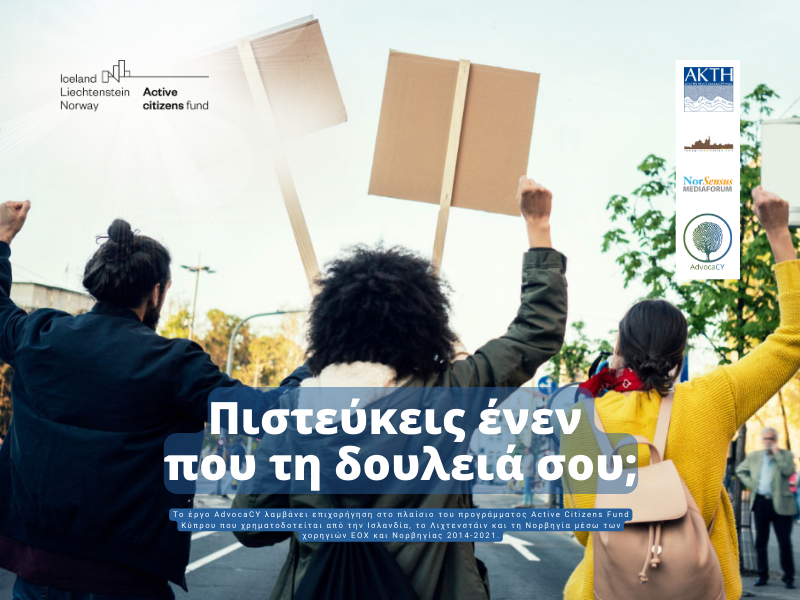
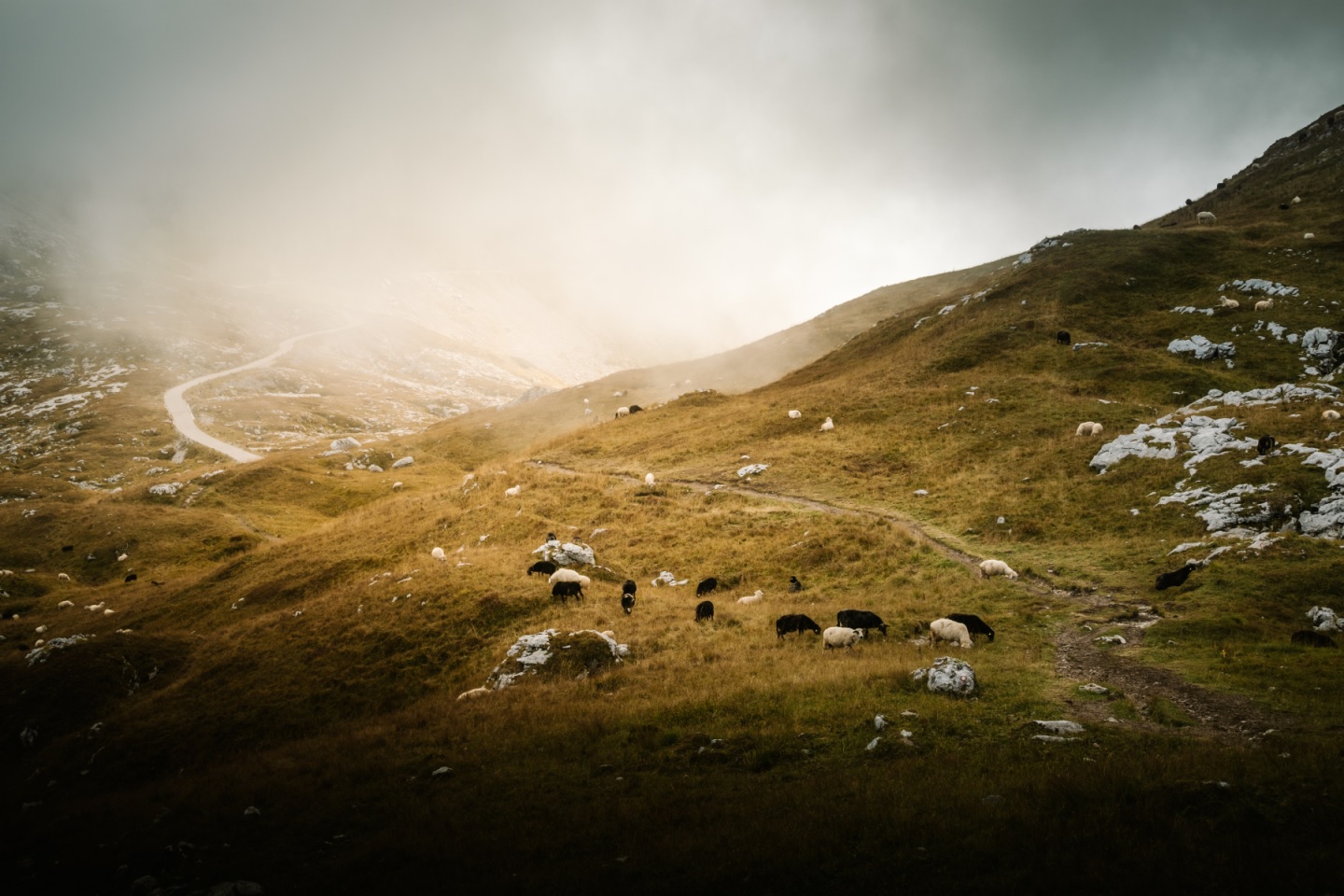
In 2015, the United Nations Environment Programme (UNEP) initiated an implementation guide to assist policy and decision makers to apply Rio Principle 10.
But, what is the Rio Declaration and why is its accelerated and effective implementation at all levels so important? Learn more here.
‘Putting Rio Principle 10 into Action’ Implementation Guide.
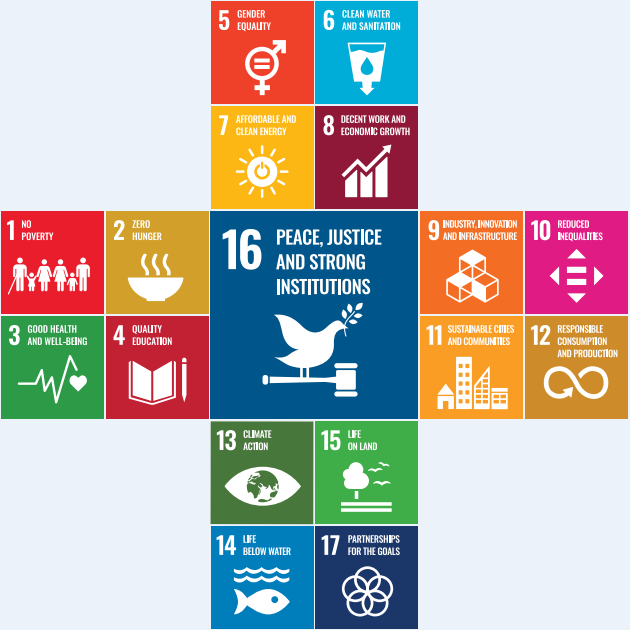
SDG16+ Civil Society Toolkit is a guide of practical steps and resources to advance peaceful, just and inclusive societies.
The toolkit is freely available in several languages here.
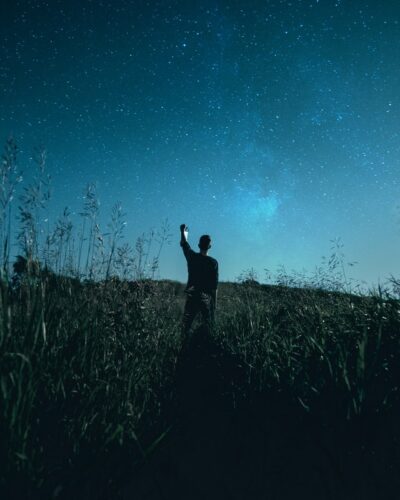
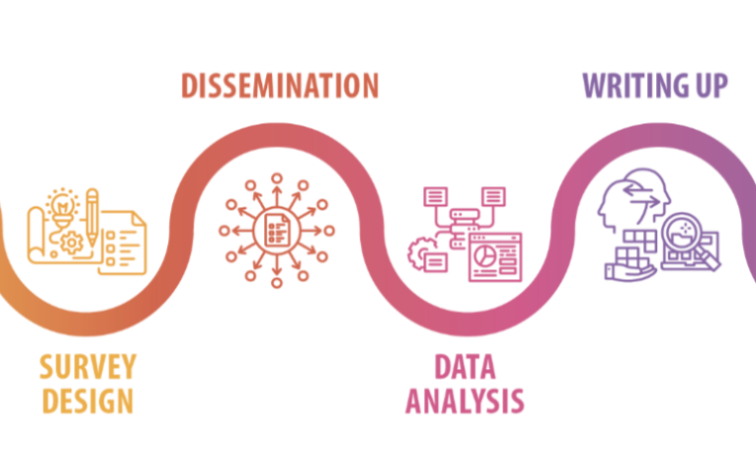
UNESCO IESALC’s project ‘Futures of Higher Education’ records the views of people of all ages in 100 countries on the future of higher education. Check out the public consultation’s results in this interactive website.
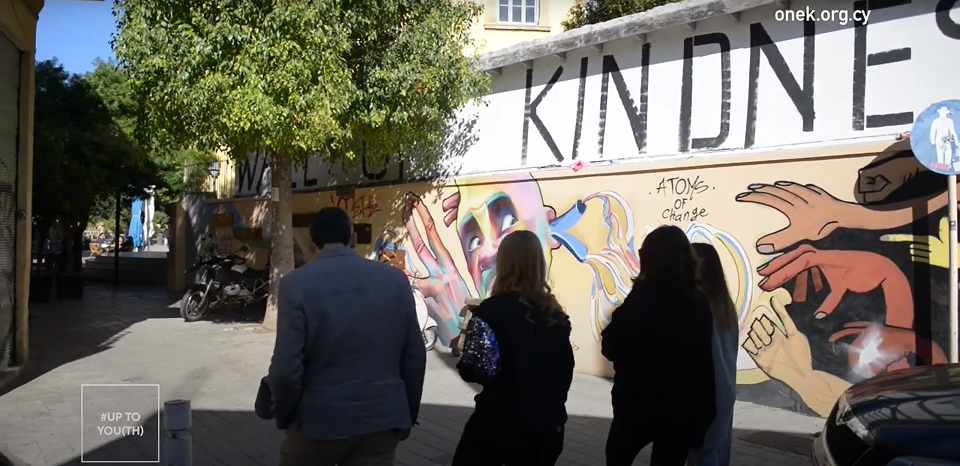
EU Youth Dialogue allows youth in Cyprus to speak their mind and express their concerns on the issues that directly influence them. Check out this video to learn more (video is in Greek).
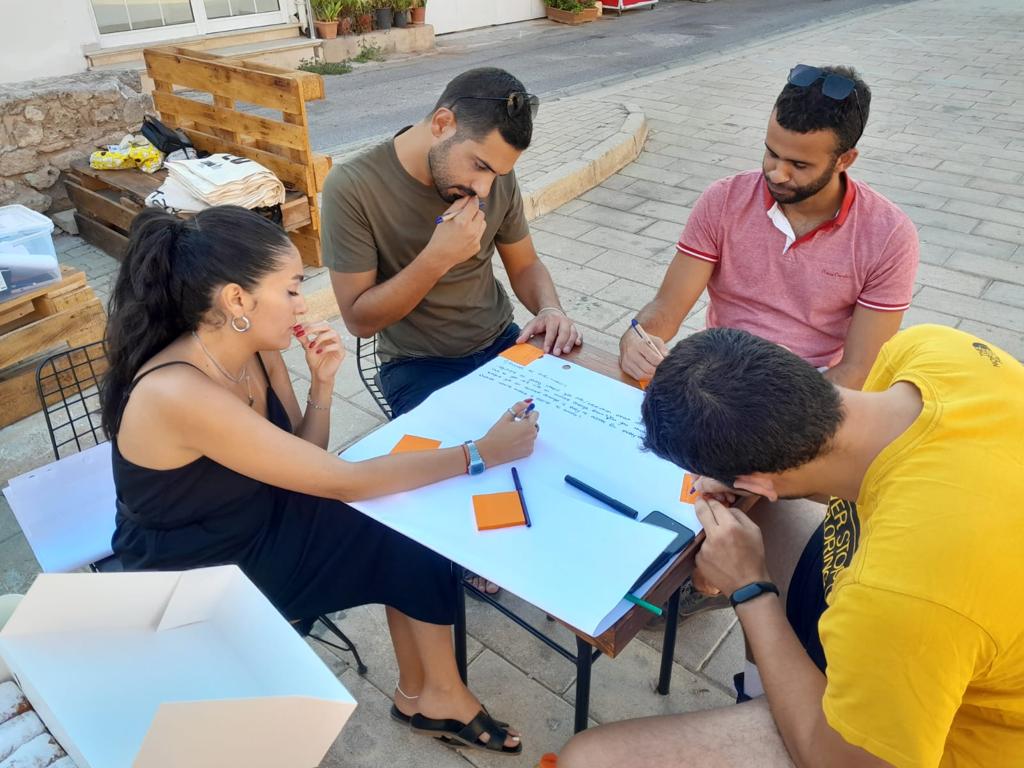
‘Green, Sustainable Europe and the creation of an Inclusive Society’ Consultation by Cyprus Youth Council, within the framework of the 9th cycle of EU Youth Dialogue, 26th August 2022, Famagusta.
The Cyprus Youth Council is giving voice to young people across the island.
Participate and let your voice be heard. Visit Structured Dialogue to learn more.


Fit for Future (F4F) is a digital platform developed by the European Commission where citizens and stakeholders can share their opinions to ensure EU laws help, not hinder, people and business.
Share your suggestions to make EU laws more efficient and fit for the future, here.
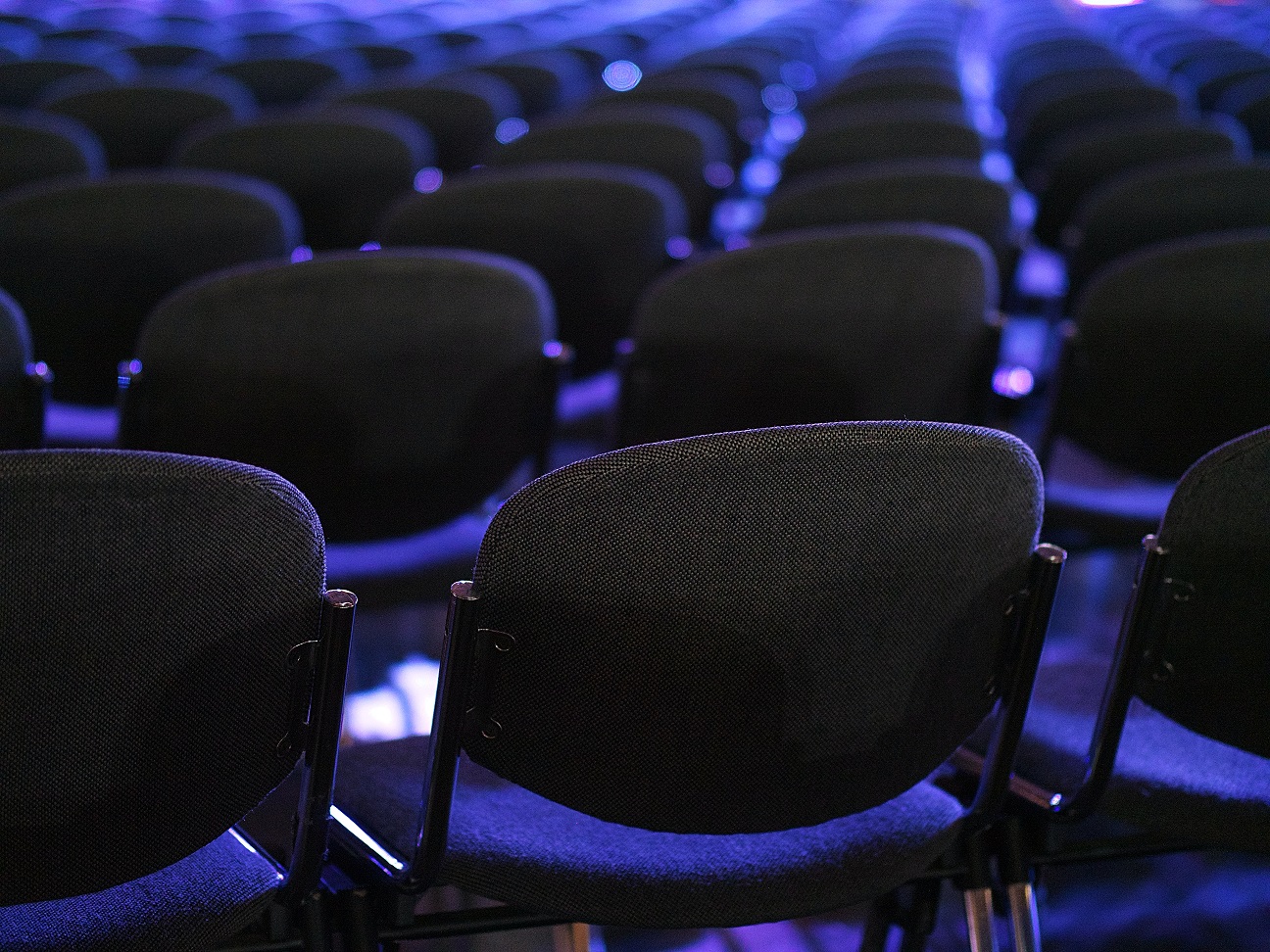
How can we improve citizens’ participation in public consultation processes?
Here’s 4 tips based on the analysis of key-challenges to public participation.
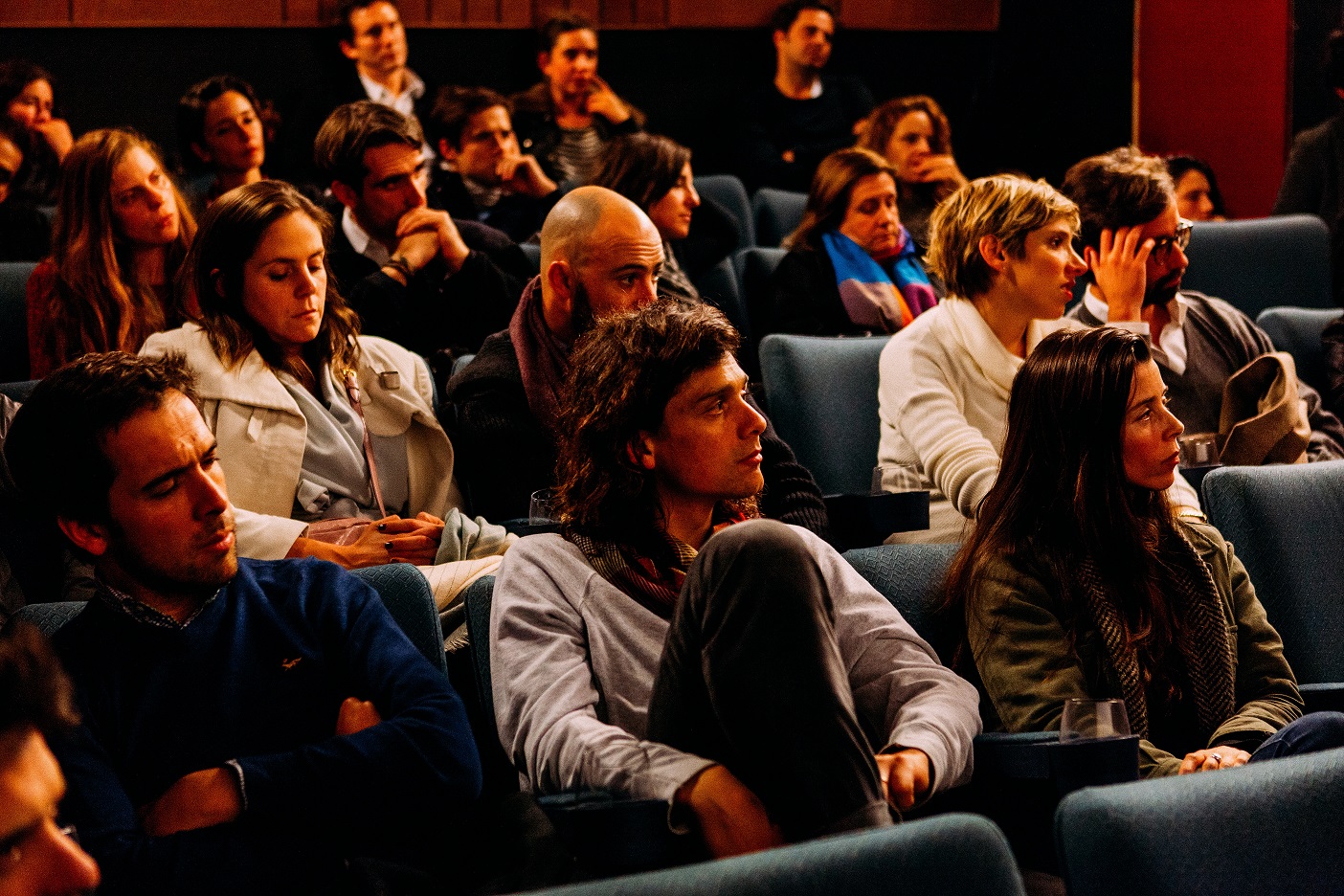


What are the main barriers to public participation consultation processes?
Public participation processes are vital for democratic societies, responsive to public needs. However, public participation can be constrained by many factors. Exploring the reasons hindering public participation is crucial for effective consultation processes and achieving better results.
Learn more here.
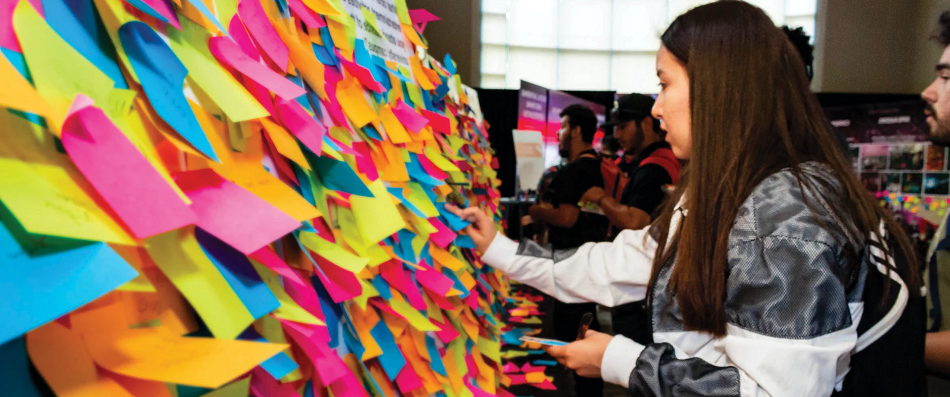
How can we improve community engagement?
5 easy steps for breaking down barriers and encouraging participation here.
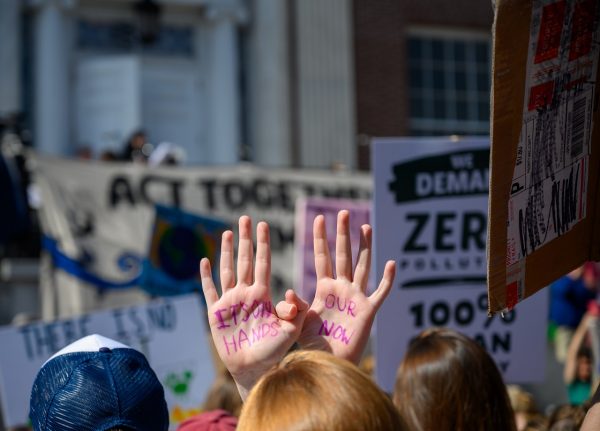
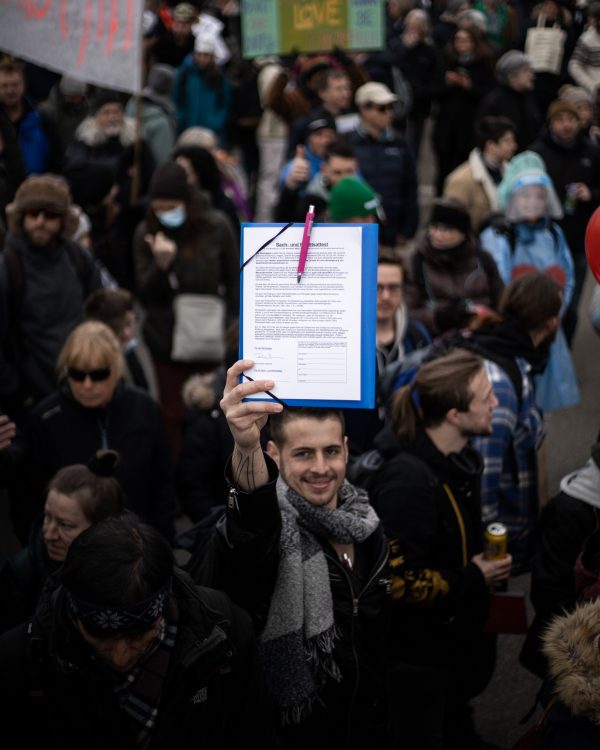
Citizens in Northern Ireland are able to participate in consultations and surveys for governmental initiatives through the online consultation tool Citizen Space.
The online platform is developed and run by the Northern Irish government and features activities from several governmental departments, including the Department of Communities (DfC), Department for the Economy (DfE), Department of Education (DE), Housing Executive (NIHE), etc.
Once a consultation is completed, all responses are carefully analysed and the results are made widely available, with an account of the views expressed and the reasons for decisions finally taken, in line with Northern Ireland’s Open Data Strategy for 2020-2023.
Are you familiar with any similar online tools for public consultations?
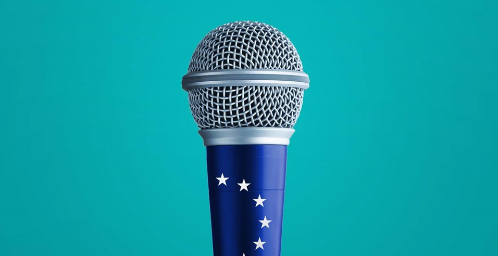
The European Commission regularly seeks the views of citizens for developing policies and legislations.
Visit their website to find out more about active public consultations.

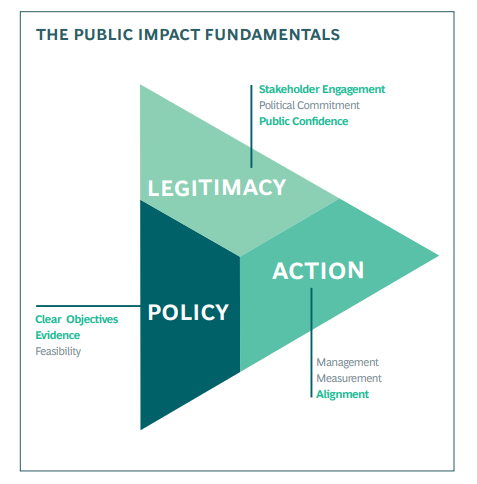
Care to learn more about Public Consultations?
Have a look at this brief introduction
What is a public consultation, when is it required, and what are its benefits?
Check out this brief step-by-step guide to learn more.
2nd Awareness-raising campaign: The role of CSOs in society
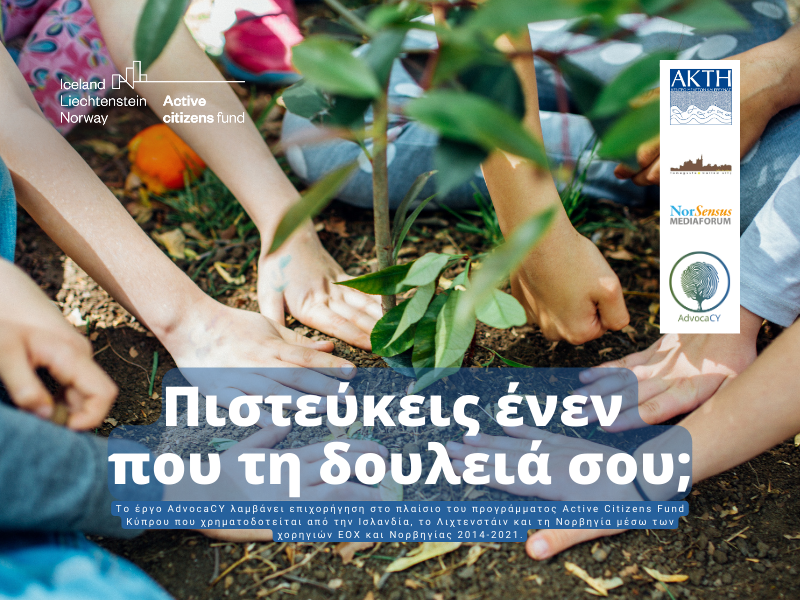
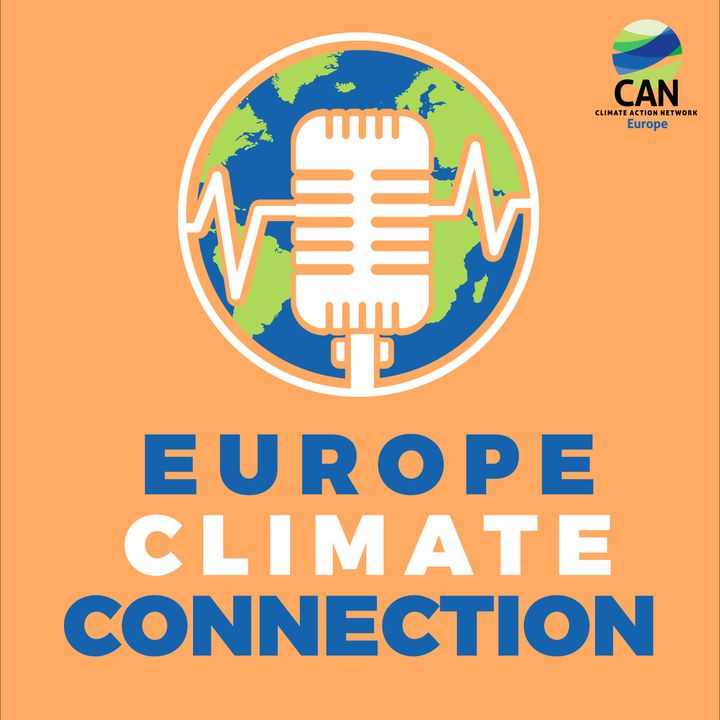
Climate Action Network (CAN) Europe is a podcast dedicated to climate action across Europe.
Tune in and listen to their inspirational guests from civil society organisations and their efforts to fight the climate crisis.
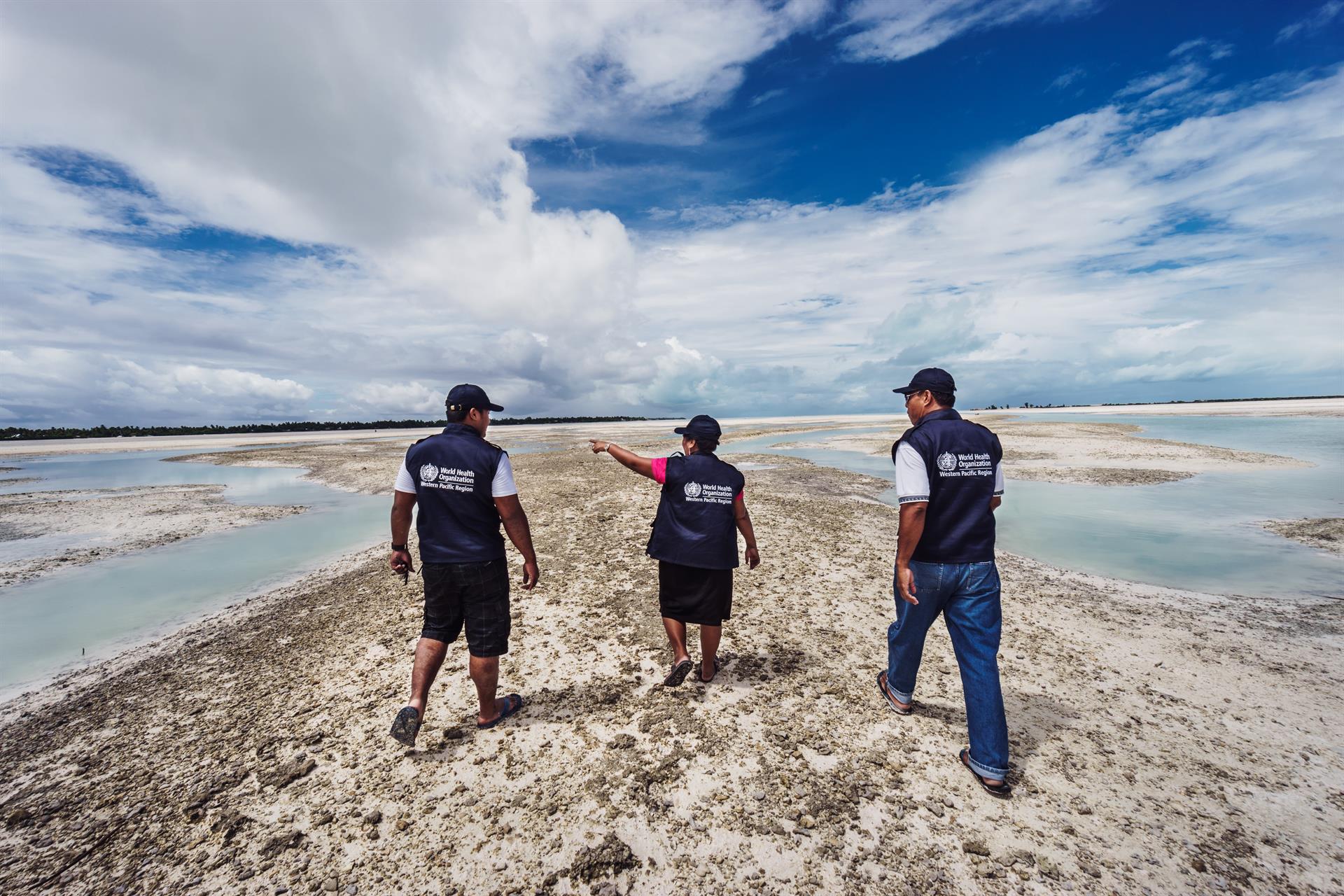
Climate Change is impacting human lives and health by threatening access to clean air, safe drinking water, nutritious food supply and safe shelter. World Health Organization (WHO)’s ‘Civil Society Working Group’ brings together WHO representatives with NGOs working on health and climate to increase the health sector’s engagement with climate action.
Learn more about their work here.
Check out the Climate Action Stories of Civil Society across the world.
Do you know any similar initiatives in Cyprus?

Did you know there are more than 260 Civil Society Organisations operating across the island?
Visit Civic Space’s CSO database to learn more.
Global Citizens is an organisation bringing together people across the globe to call on world leaders, to ACT NOW! Join the movement, change the world.
Learn more here.
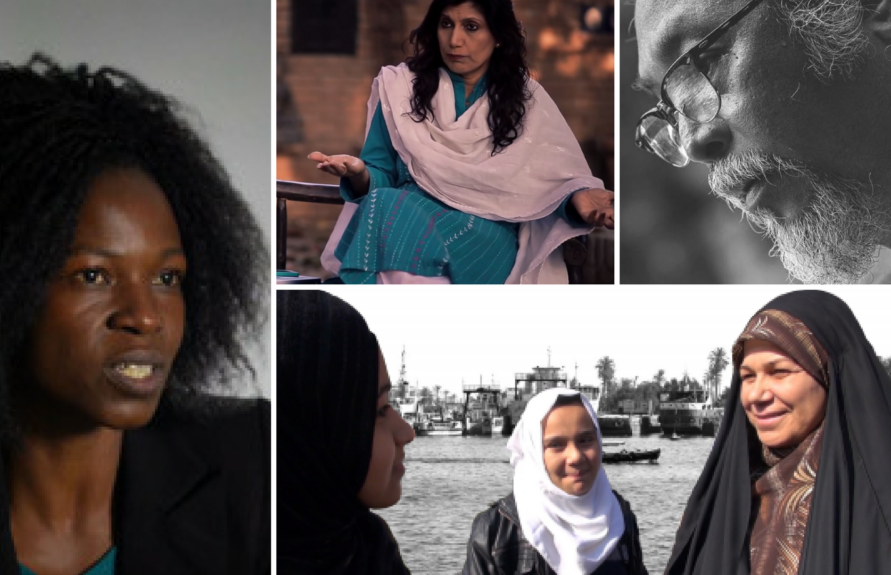
“Faces of Civil Society” is a short film series sharing the stories of inspiring activists from Burma, Iraq, Pakistan, and Zimbabwe. Learn more and watch the series here.
Are you aware of any similar stories from Cyprus?
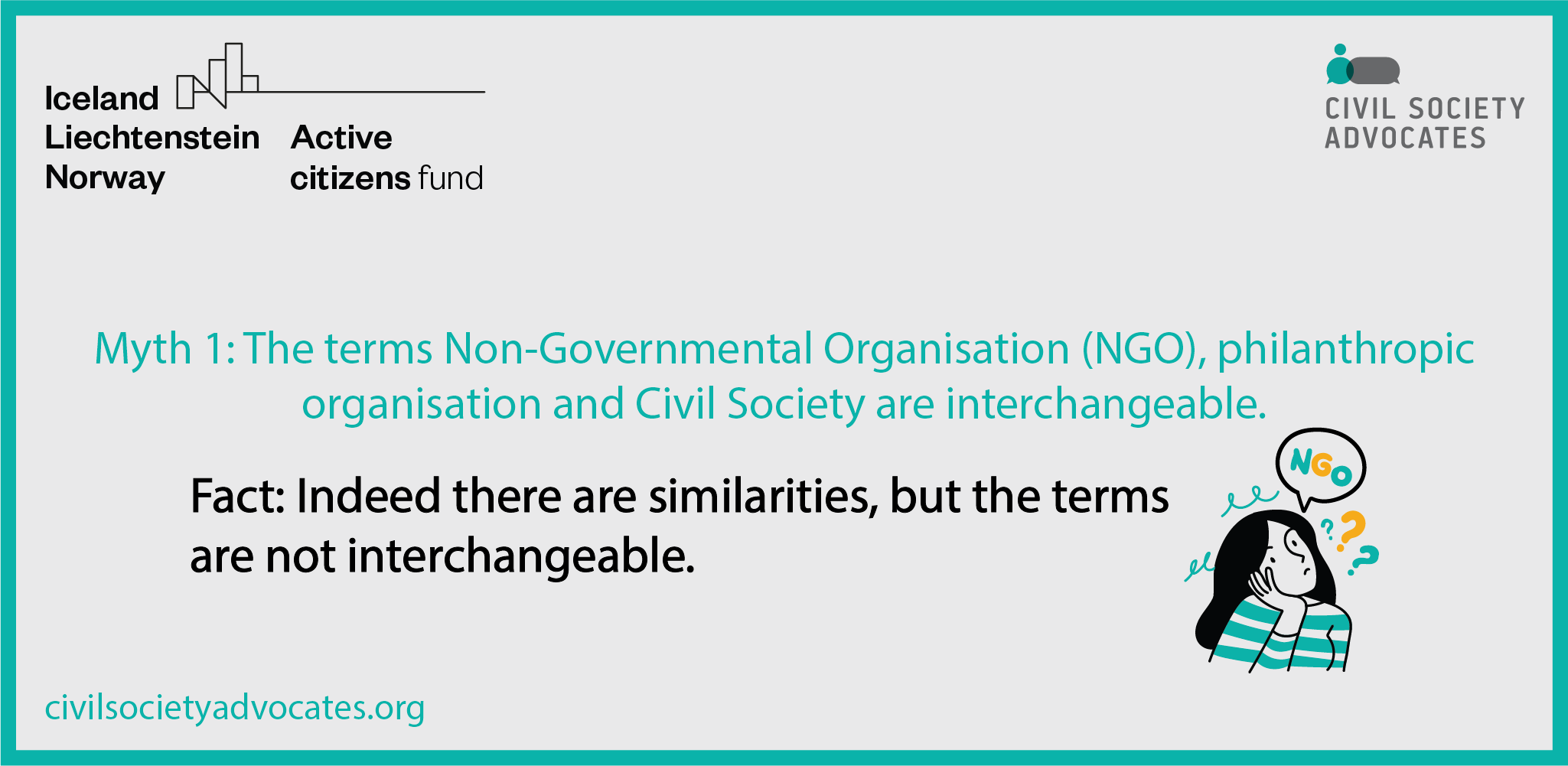
“10 Myths And Facts About Non-Governmental Organisations” is an awareness raising campaign by Civil Society Advocates debunking myths and misconceptions about the work of NGOs.
Myth 1, tackles CSOs and how their work differs from NGOs.
Learn more here.
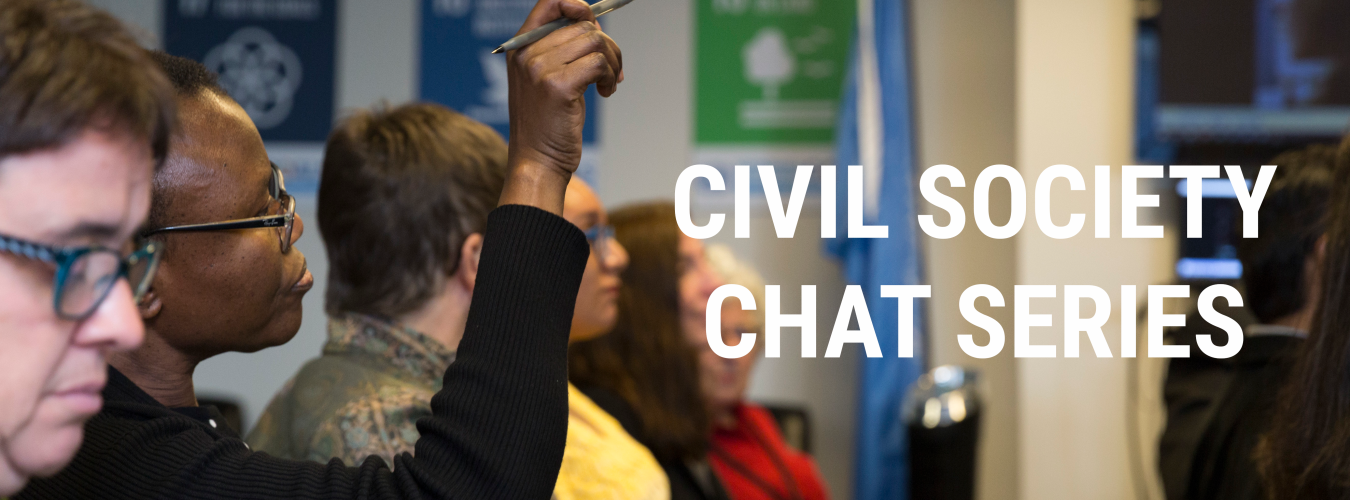
The ‘Tuesday Chat Series’ is a monthly meeting bringing together CSOs and the United Nations’ Civil Society Unit to discuss ideas, initiatives, and best practices for promoting positive change within societies.
Learn more here.

CIVICUS Voices is a podcast that brings you voices of people, communities, and organisations defending civil liberties and human rights; with themes ranging from the fight for climate justice to reproductive rights.
Check it out here.
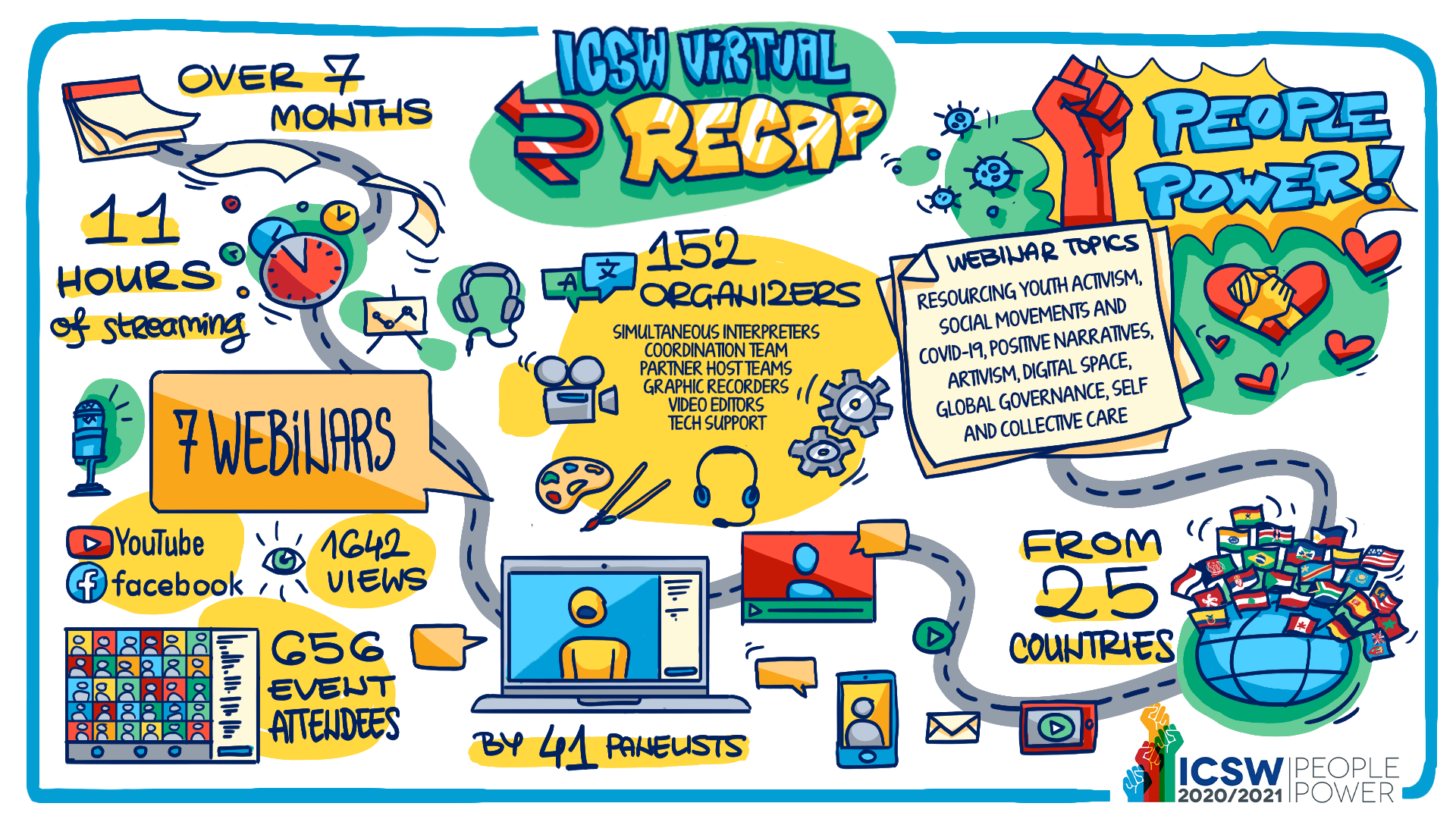
International Civil Society Week (ICSW) promotes a global conversation about the collective power of people acting together for social and political change. Check out the 7 virtual events of ICSW2020/2021, with themes ranging from ‘Artivism for Inclusion’ to ‘Positive Narratives for People Power’ here.
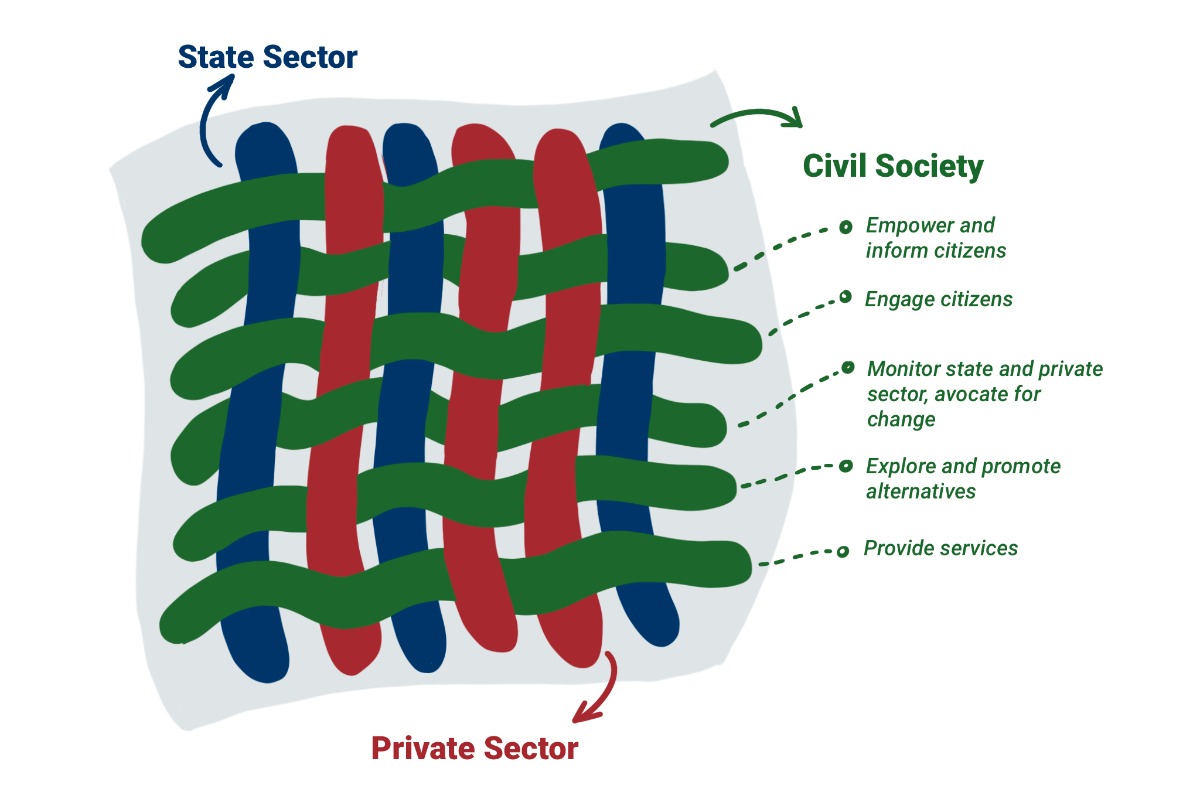
Civil society organisations offer a platform where people can talk, create, engage, and support each other. But they also do much more than that!
Learn more about why civil society is so important.
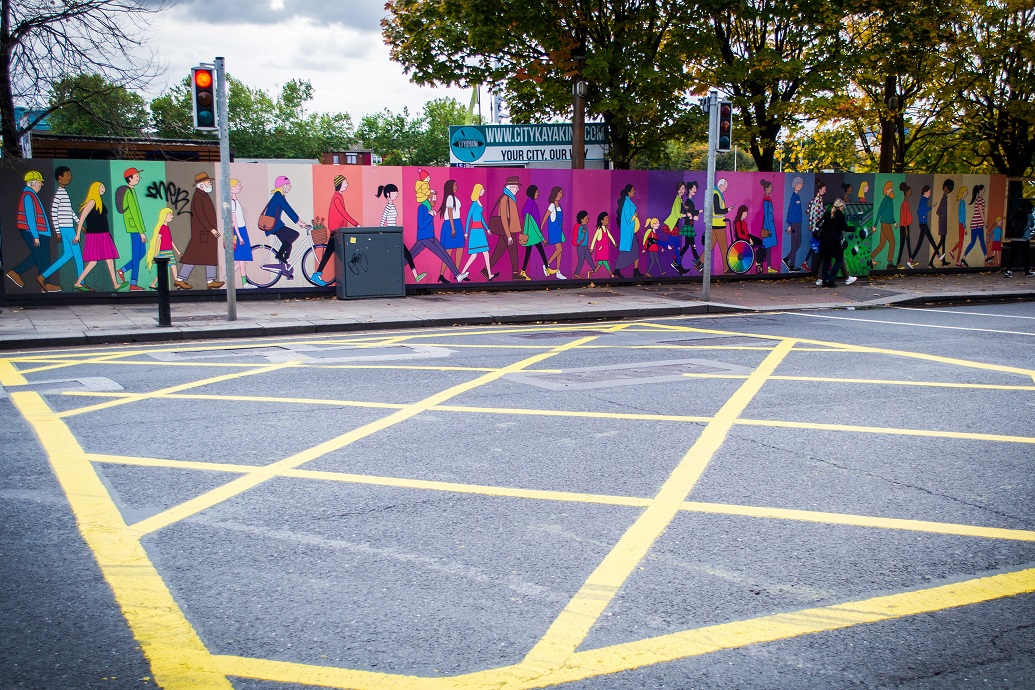
Who and what is ‘civil society‘?
Check out this article by World Economic Forum to learn more.
What are Civil Society Organisations (CSOs) and what do they do?
Learn more in this short video.
1st Awareness-raising campaign: Environment as Civic Right
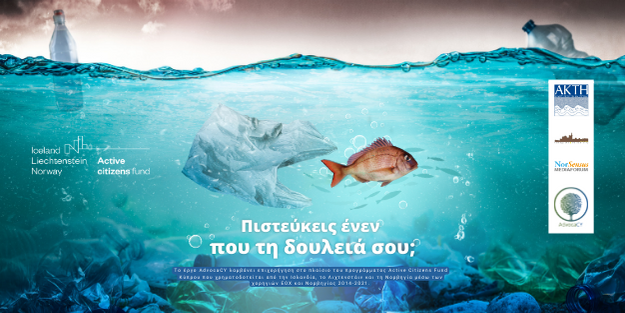

Did you know that access to a healthy and sustainable environment is a recognised human right? But what does that mean exactly? Here’s 6 key-things you need to know.
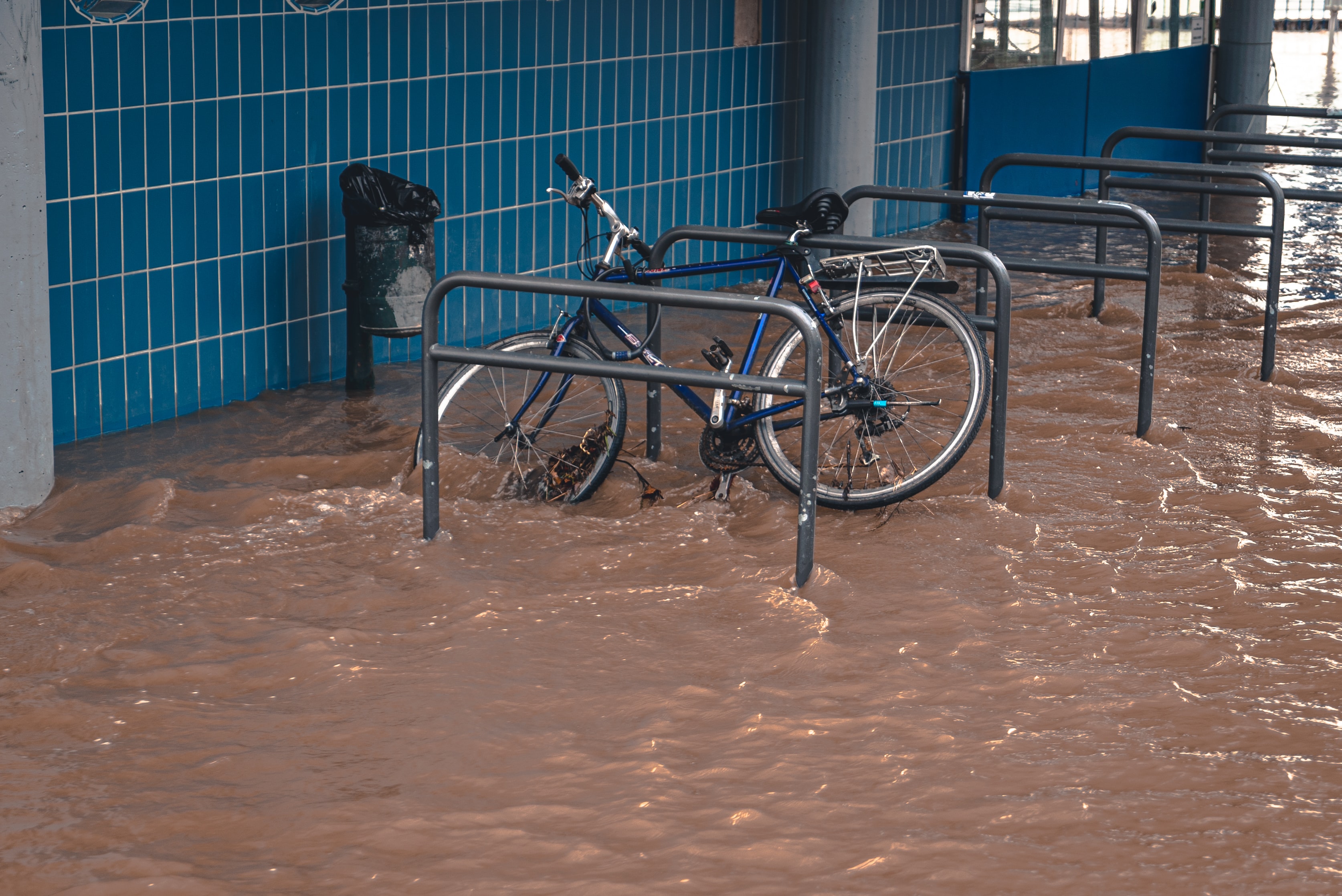
WWF’s Living Planet Report 2022 highlights the emergency of changing the ways we produce, consume and govern.
We hope it inspires you to be part of the change for building a nature-positive society.

Here’s 9 things YOU can do about climate change as an active citizen!

A clean and healthy environment is part of our rights and responsibilities as citizens.
What can you do to fight climate change?
Whether you love him or hate him, here’s some ideas by Bill Gates.
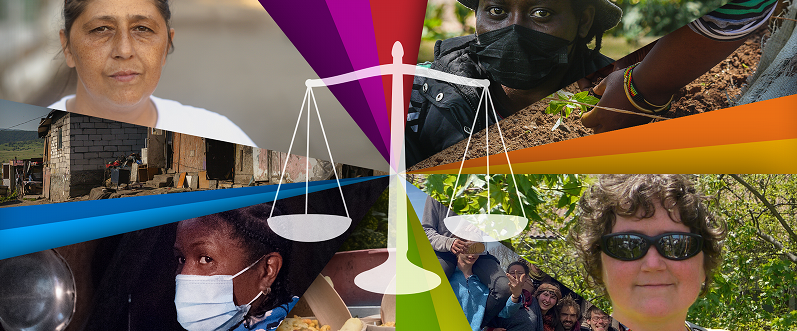
Civil rights and protecting the planet go hand-in-hand.
Learn why here.
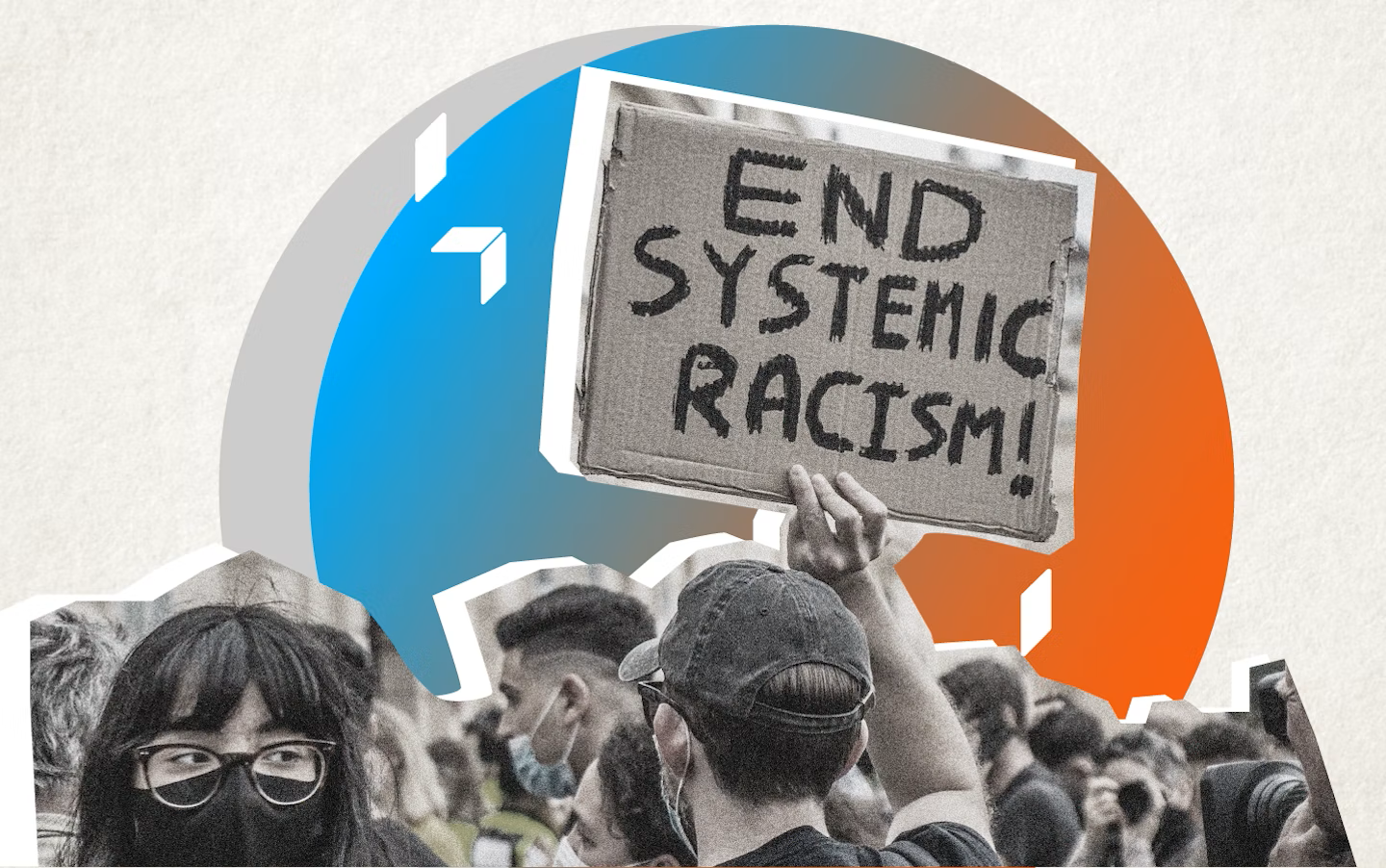
What are civil rights?

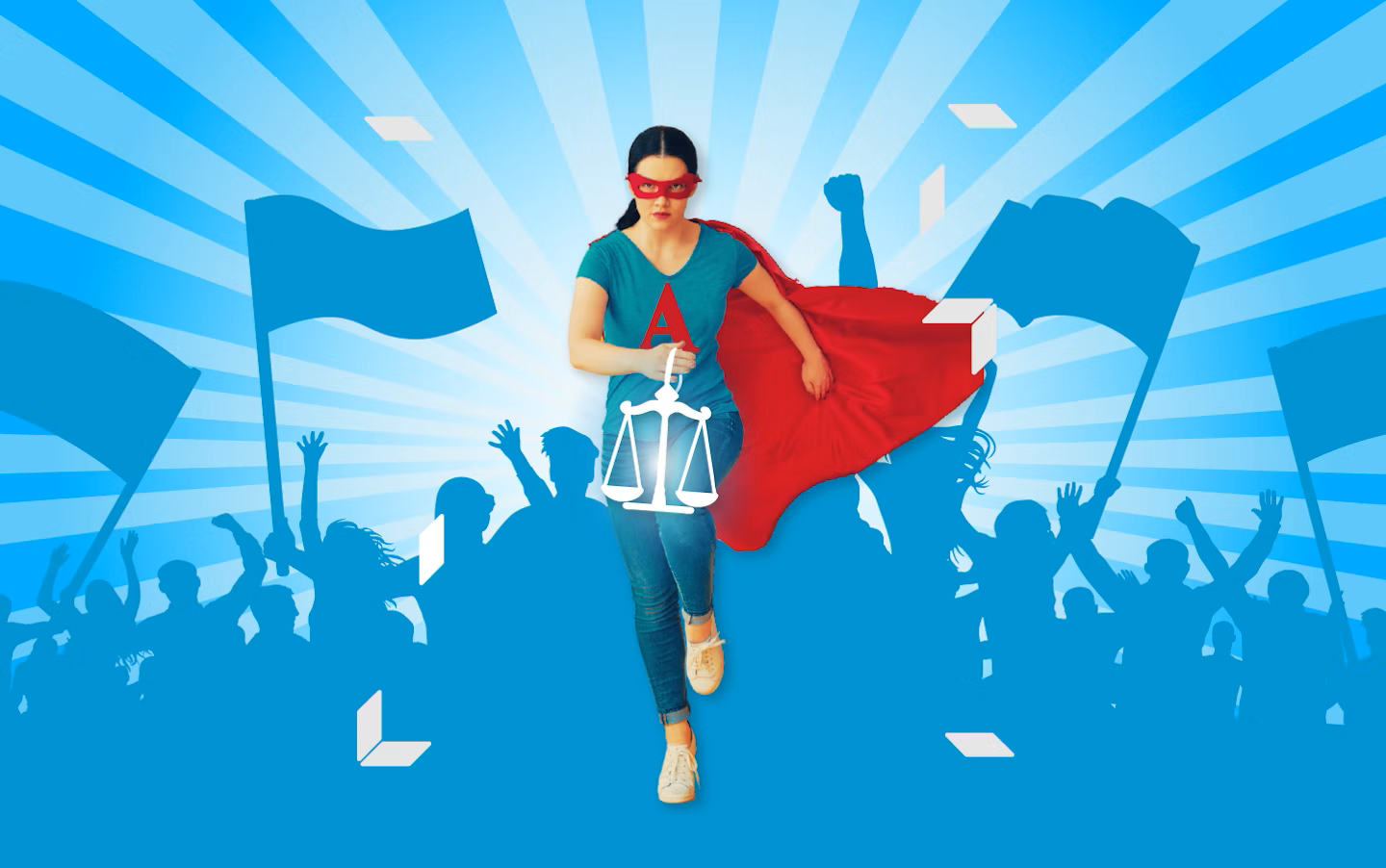
We are kicking-off our first AdvocaCY awareness raising campaign by taking things frοm the top. What does advocacy mean? Learn more here.
TIGANOKINISI: turning domestic used cooking oil into biodiesel
Applied Environmental Research Environmental Education and Vocational Training Public Outreach and AdvocacyMay 1st, 20220 comments
Turning a harmful waste, such as cooking oil, into biodiesel while promoting development and civic action
Continue Reading
MIO-ECSDE MEDITERRANEAN ACTION DAY 2020: Fishermen for the Akamas Marine Protected Area
Environmental Education and Vocational Training Public Outreach and AdvocacyDec 2nd, 20210 comments
The Akamas Pensinsula in Cyprus has been designated a Natura 2000 site for its rich and pristine terrestrial biodiversity. The marine area around the Akamas Peninsula has also been designated as a Marine Protected Area, the only one in Cyprus, because it is home to the island’s most important marine turtle reserve. Nonetheless, the wider Paphos District, within which the Akamas Pensinsula is located, has seen rapid development in recent years, as a result of increased touristic and foreign investment opportunities. Consequently, there is an ongoing, often heated debate, on the need of the conservation status of the peninsula as most of the land is privately owned. At the same time, the Cypriot fishing community, already struggling as a result of the relatively poor, oligotrophic waters of Cyprus, is eager to expand its fishing area within the Akamas Marine Protected Area. The root cause of the problem is a lack of understanding of the importance of the Akamas Natura 2000 site not only to the local and national environment but also to the local and national economy.
AKTI has extensive experience in working with local stakeholders in the wider Paphos/Akamas area and in environmental awareness-raising in general. This experience has demonstrated that bridging the knowledge and awareness gap can have significant positive impacts in changing behaviors and supporting environmental protection actions. A notable example is the very recently launched by AKTI (June 2020) Fishing for Litter initiative in Paphos (the first in the Republic of Cyprus), under the name Seanergy, with the active and eager collaboration of the Paphos District Fishermen’s Union. These are the same fishermen that operate in the periphery of the Akamas Natura 2000 site!
Also through several other activities in the area (such as Blue Cafes, the MELTEMI project activities etc), for the last 10 years, AKTI has created a base of stakeholders that can act as a core group to spread the word that protecting Akamas as a precious MPA is a win win situation! Through this proposal, AKTI would like to build on the success of its activities in the Akamas Pensinsula and boost public engagement so as to have more stakeholders supporting the protection of Akamas Natura 2000 site.
This has been achieved through the organization and implementation of a series of awareness-raising activities, as follows:
✅ The organization of a hike in the Natura 2000 site and more specifically at Avakas Gorge
✅ The implementation of semi-structured interview, virtual and over the phone, with fishermen, NGOs, tour operators and educators in the area to identify the main bottlenecks as well as solutions on how the Akamas Marine Protected Area can become a significant asset for the economic prosperity of the area.
✅ A social media campaign on Natura 2000 and especially the Akamas site.
Astrotourism
Applied Environmental Research Environmental Education and Vocational TrainingJul 30th, 20200 comments
Astrotourism is a 36-month long project funded by the Research and Innovation Foundation.
The project aims in using a professional approach in astrotourism product research and development for Cyprus along with a high-end astrotourism policy and governance.
Astrotourism’s research objective is to initiate a new section in the Cyprus tourism industry by increasing the number, the quality, the expenditure of the tourists and the number of local jobs in the periphery. Within this objective, we aim to research and create direct and indirect experiences within real, virtual and blended augmented reality environments where the visitor could expand his/her astronomical knowledge in a practical, simple and efficient way. This experience will be an added value tool for Cyprus, where the weather conditions secure clear skies for most of the days and nights. The overall goal is to conduct research that will focus on “beyond the state-of-the-art” innovation in the field of astrotourism leading Cyprus to be added on the world map of the astrotourism “hot” destinations and creating the proper environment to host and offer astronomy experiences for both experts and enthusiasts at an entry level.
Cyprus has one of the clearest night skies as well as optimal geographical location in the world, offering great advantages for astrotourism development.
Added value of the project:
- will strengthen the tourism competitiveness in Cyprus;
- will research and develop an innovative product that will give Cyprus the leverage to include itself in the international arena of astrotourism destinations;
- will provide solutions in diminishing the long-standing problems of tourism in Cyprus, i.e. the low-income tourism & and the seasonality issues;
- will give dedicated care for the environment;
- will provide the opportunity for many local citizens to experience and learn about the universe in both real and virtual environments;
- will be the driver for the creation of local jobs.
Project products:
- Astro-Parks & Astro-Villages Eco-System set-up.
- Astro-Tour Guides, Material and Training: fun-and-learning activities for age groups 3-5, 6-9, 10-12 to be implemented in Astro-Parks.
- Astro Programme & Astro Events: Yearly Calendar of Astronomical Events and a calendar specifically highlighting high-profile astronomical phenomena visible from Cyprus.
- Astro-Tourism Packages: for attracting visitors to the astroparks and astrovillages, and to be used for the pilot study.
- Material on augmented reality/virtual reality.
- Strategic Business Plan: for the commercialization of the Astrotourism project.
The project consortium is composed by seven partners with different expertise in relation to the project. Along with AKTI, Project and Research Centre, the project’s consortium is consisted by Top Kinisis (coordinator), the Research Centre on Interactive Media, Smart Systems, and Emerging Technologies (RISE), the University of Nicosia Research Foundation, the Enrico Fermi Institute at the University of Chicago, Adelve and 1010 Asteroskopeion.
Ocean Conservancy: Citizen-science, Advocacy and Social Co-Responsibility for Trash Free Seas in Cyprus
Applied Environmental Research Environmental Education and Vocational Training Public Outreach and AdvocacyJul 10th, 20200 comments
A recent EU survey on the environment demonstrated what we have long known: while Cypriots express concern about the environment they are unlikely to act on environmental issues at the individual level. In the run-up to the 2019 ICC, AKTI launched a media campaign to encourage individuals to act spontaneously, as responsible citizens, against marine litter. The campaign was named “#potavristou”, which literally means “reach out” in the Cypriot dialect, but also has the meaning of “giving a helping hand”. AKTI, through its social media and with the support of several public media (TV & radio), asked individuals to simply “reach out”, anywhere they were on September 21st, collect the litter lying around them, take a photo and post it on social media using the hashtag “#potavristou”. Facts on marine litter and plastic pollution were shared on social media in the week leading up to the event to exemplify the #potavristou meaning. Over 500 people posted pictures and data on collected litter all around the coastline of Cyprus. It was a great achievement for Cyprus! This was the first campaign that targeted the self-responsibility of Cypriots as citizens, without organized groups or beach clean-up events on specific beaches. It is obvious that there is public sensitivity on the issue. And there is a definite need for more concerted actions, awareness, and stronger advocacy work. Cyprus has one of the lowest recycling rates in Europe. While lack of citizen action plays a role in this, inappropriately enforced legislation is also an important contributor. A striking example of this is the fact that the hospitality sector (HoReCa) is not obligated to separate and recycle their waste! With this proposed activity, capitalizing on the success of #potavristou, AKTI aims to strengthen its outreach for enhancing citizen engagement and its capacity to offer broader advocacy to a larger spectrum of citizens groups through (1) empowering/encouraging citizens to act against marine litter, (2) gathering important-for-research citizen-science data that are scarce in Cyprus, (3) liaising with key stakeholders to identify effective measures to stop the flow of litter to the marine environment.
The proposed activity is supported by the Cypriot Commissioner for Environment.
Activity Goals:
– Instill a sense of social co-responsibility about marine litter by capitalizing on the success of the 2019 ICC in Cyprus and the #potavristou campaign.
– Collect important citizen-science data to inform AKTI’s future actions/messages on marine litter.
– Advocate for stricter measures to reduce the flow of litter to the marine environment.
Procedure:
A. Call to Action for the 2020 ICC and #potavristou initiative using the “Clean Swell” application to record the litter collected.
B. Brand Data Surveys: AKTI will select 3 beaches around the island and implement the Ocean Conservancy Brand Data Survey in October/November 2020, identifying the main brands but also determining whether this litter originates in Cyprus or is washed ashore from neighboring countries.
C. Policy Tool Development: In the winter 2020/spring 2021 AKTI will implement 3 specially designed workshops to gather stakeholder opinions on suitable, effective and applicable measures to address the marine litter issue. The first two workshops will take the form of ‘Blue Cafes’ i.e. get togethers at informal settings where participants, comprised of a mixture of local decision-makers, business owners (i.e. hospitality sector), NGO representatives and citizen groups will discuss the issue of marine litter within their area (sources, impacts) and identify potential solutions. The third workshop will be the wrap-up event: it will bring together decision-makers at the local and national level. Based on a dedicated decision support method and the suggestions from the Blue Cafes, the participants will identify and select the most effective measures to address marine litter in Cyprus. The outputs from this workshop will be used to form a Policy Tool i.e. an Advocacy Tool for AKTI to present to high-level decision-makers. The support of the Cypriot Commissioner of the Environment is a very important asset for the action’s success.
The Seanergy Project
Environmental Education and Vocational TrainingJul 10th, 20200 comments
Η CYMEPA, το Κέντρο Μελετών και Έρευνας ΑΚΤΗ μαζί με τα εστιατόρια Ocean Basket ανακοίνωσαν την έναρξη της δράσης Ψαρεύω τα Σκουπίδια (Fishing for Litter) στο πλαίσιο του προγράμματος “The Seanergy Project”, την Παρασκευή 3 Ιουλίου στο λιμανάκι της Κάτω Πάφου σε συνεργασία με τον Σύνδεσμο των ψαράδων της Πάφου. Η δράση «Ψαρεύω τα σκουπίδια» θεωρείται από την Ευρωπαϊκή Επιτροπή ως καλή πρακτική για την μείωση των σκουπιδιών της θάλασσας. Ξεκίνησε από ένα λιμάνι στην Ολλανδία και σήμερα υλοποιείται σε πάνω από 70 ψαρολίμανα σε όλη την Ευρώπη. Στην Κύπρο υλοποιείται για πρώτη φορά. Στόχος είναι να ενημερωθούν οι ψαράδες μας, οι Αρχές και το κοινό της Κύπρου για το ζήτημα των σκουπιδιών της θάλασσας.
Οι δύο οργανισμοί παρείχαν στους ψαράδες εκπαίδευση και ειδικές μεγάλες ανθεκτικές σακούλες, για να μαζεύουν τα σκουπίδια που πιάνονται στα δίχτυα τους και να τα φέρνουν στην ξηρά.
Επιπλέον, η δράση στοχεύει στην καταγραφή των τύπων και των ποσοτήτων των σκουπιδιών που συλλέγονται. Τα στοιχεία αυτά αποτελούν πολύτιμα δεδομένα για την επιστημονική έρευνα και θα καταχωρηθούν στην Περιφερειακή Βάση Δεδομένων της ΑΚΤΗΣ.
Τη δράση υποστηρίζει η εταιρεία εστιατορίων Ocean Basket με τα έσοδά της από την πώληση επαναχρησιμοποιούμενων τσαντών.
Φωτογραφίες και βίντεο από την Ενακτήρια Εκδήλωση, μπορείτε να δείτε πιο κάτω:
Archives





